#I LOVE CITING SOURCES!!!!!!!!
Explore tagged Tumblr posts
Text

Beware the Whisker Wizard!
(Based on this post)
#wizard#I believe the cat's actual name is Doja and the original post is from instagram @dojathedevonrex#Remember that the most powerful wiazrd spell of all time is Citing Your Sources.#I am once again in Stackedbirds' debt for the wizard posts. And what a treat this one was!#I love drawing silly cats and I love drawing wizards!!! The perfect drawing assignment!#Cats really do have a terrible power to negate the threat level of important tasks with their cuddles.#You may have important things to do. But the cat just sat on your lap and started to purr. The task is now lower priority.#Perhaps all cats are secretly warlocks cursed into compact form. They attempt to cast charm person on us and we let it happen.#They have fairly weak attack spells against humans (unless it lands a crit and then you're in trouble) so they specialized in charisma.#There's no way they are using INT as a spell casting modifier. DEX imaybe.#I could draw cat wizards all day - this is a dangerous rabbit hole for me to go down.#If you have a particularly wizardly cat...Please....please show them to me.
2K notes
·
View notes
Text
chance in the demo whenever you end the oneshot by sacrificing your character:

og image:

#thank you tumblr for absolutely fucking tanking the quality of the image!! not that it had much to begin with anyway-#this is so stupid and horrible but wtv HI DATE EVERYTHING FANDOM I LOVE THIS NERD MAN <33#art tag#i think that was my art tag i keep forgetting#anyway I LOVE HIM SO MUCH BUT HIS OUTFIT ;-;.... if pookie why hard to draw.....#date everything#date everything chance#chance the d20#chance date everything#date everything dating sim#small edit to cite my sources
636 notes
·
View notes
Text
When it comes to Fallen London I think the thing I wish most for is like. A comprehensive database regarding the characters and locations themselves (not just broad lore) in the world. Because while the wikis we do have are magnificent resources for their respective topics (the regular FL Wiki for gameplay and the Fifth City Lore Wiki for more general worldbuilding) part of me very much wants to spend the rest of my life and thousands of dollars combing through every possible text route in Fallen London searching for even the smallest of NPC names and cataloging all the strange places mentioned off-hand, and then putting them in a wiki to look at whenever I want to write something about one.
#fallen london#fallen london lore#like. i have my favorite little guys. my favorite weird NPCs!!#but sometimes i don't pay attention to certain characters and miss important details that make others really like them#or maybe I want to show other people characters that I love and maybe they could use like. knowledge of how to interact with them in game#or what their deal is before they go find them in game#idk im mostly spitballing but i've been rotating this thought in my head for a while#I want to have all the information ever <- the greedy and voracious reader of stories#this also comes from the deeply ingrained desire to cite sources for headcanons abt characters and WHOO BOY lemme tell you.#Fallen London is NOT a game that is easy to cite let me tell you.
174 notes
·
View notes
Note
Tell me your opinions on the stuff. Any stuff.
Grins. Smiles, even
I'm using you as an excuse to infodump my theory about the Island because I've had no in to do that, and my theory is pure opinion. Anyways:
THE ISLAND IS STUCK IN THE FUCKING FUTURE
(SCARE CHORD)
Hi so you might ask me. What the fuck do you mean by that. Well. Let's start with what we know about the Island, the King, and Wish Craft. (long ass post under cut. sorry)
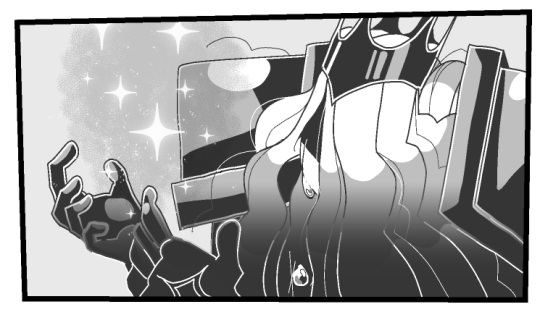
The Island was redacted from the perception of outside world, via Wish Craft.
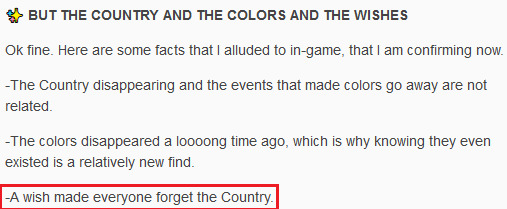
Wish Craft has the power to enable Time Craft. We see this primarily through Siffrin's timeloops, but also through the King's powers.

One of the King's powers is to show the saviors a "vision of the future."
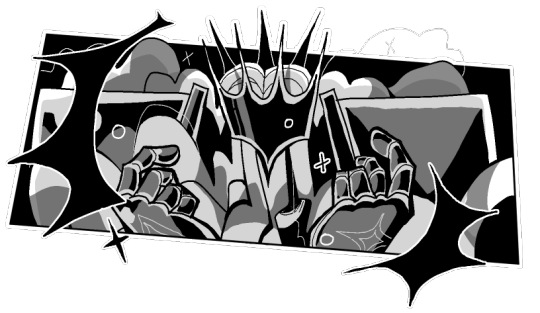
...And this same attack is deflected back at the King by Mirabelle in ACT 5, in which the King is able to see the Island before being frozen in time.
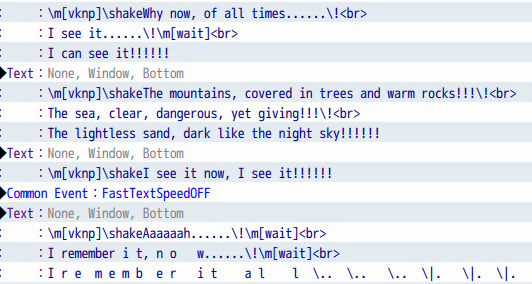
...So. The King's "vision of the future." We're never told explicitly what this vision is. All we know is that it's apparently powerful enough to wipe the party in one hit, hearing it from a distance hurts your head, and that whatever Siffrin (and Loop) saw, they don't seem to actually be able to describe it. Even the King himself doesn't know what his vision entails.


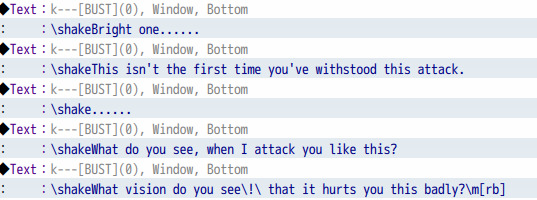
We don't know whether the party all sees the same thing when struck by the vision, and Adrienne's answer to the question about it in the Reddit AMA is. vague? It's not a "no," and the specific wording makes me think the answer might be yes. But that's me reading into it.

Now. What do we know about the Island's redaction? The Island was affected by the wish recently, as in "like a decade ago" recently. We know that nobody in Vaugarde or the rest of the world is capable of thinking about the Island, anything closely tied to the Island's culture, or people on the Island for very long. When they do recall these things, they slip right out of reach. Particularly, the consequence for trying to think about the Island (or, more specifically, break the wish that forces the Island out of perception) is significant pain, localized in the head.
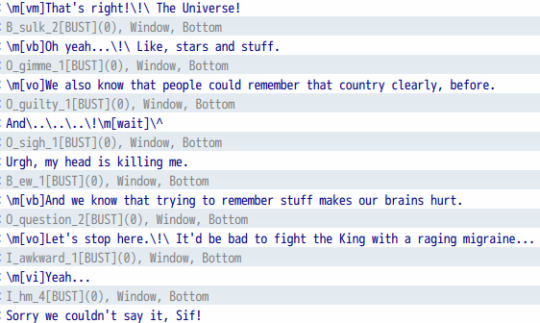
And that said pain is enough to become lethal, if pressed hard enough.
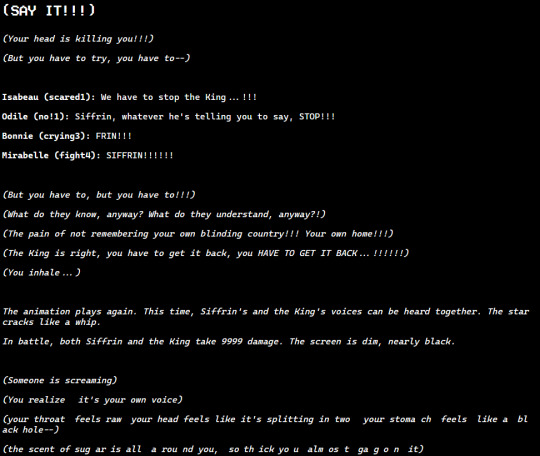
From here forward I'm running with the assumption that the King's "vision of the future" is not personalized to any individual, and is unchanging throughout the course of the whole story. Now. Remember the end of ACT 5, where the King gets hit with the deflected "vision of the future", and instead of dying, he recalls the Island and gets frozen in time? Very odd, yeah? Why wouldn't the King just die like everyone else does? He even does take 9999 damage when trying to say its name, like Siffrin does, and like the party does when they're hit by the attack.
Well. We know that he has a "true wish" that the ability to freeze Vaugarde in time grants. I don't think it's at all a stretch to guess that the King's "true wish" is to be able to remember the Island. My personal guess is that the King (and Siffrin) brought this "true wish" into effect via the "SAY ITS NAME" sequence- he even tries three times, a significant number in wishing.
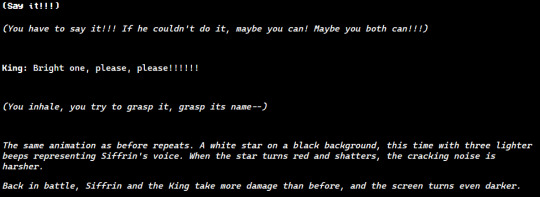


The King (and Siffrin's) wish breaks, because it can't be fulfilled in this moment without breaking the wish to prevent the Island from being thought about. However. Consider the conditions at the end of ACT 5- the King sees the vision of the future reflected back to him, and what he sees is the Island. He remembers the Island, fulfilling his own wish, and is frozen in time. I consider this a compromise between his wish and the one binding the Island- the King gets to remember the Island, but nobody alive is able to think about it, because he's frozen in time; it's like the Universe is correcting itself (I WILL GET BACK TO THIS). The wish of all of Vaugarde to defeat the King is fulfilled, since he is no longer a threat, and Siffrin's wish wraps itself up soon after.
MY POINT BEING. The King's attack is a vision of the future. This "future" is of the Island, in some uncorrupted state. The saviors see it when he attacks them, and he sees it when it is deflected back to him.
The logical next question is "okay, so the Island exists in the future, but how do you know time shenanigans are even related to the Island?"
Recall a very odd series of interactions throughout the game, in which you try to interact with a piece of equipment that you already own.
The game rewinds slightly, before the item disappears, as the Universe corrects itself.

This is awfully similar to two particular events: looping back without seeing the death screen, and talking to the Daydreaming One about her sister. The latter is more interesting to me for the purposes of this theory.
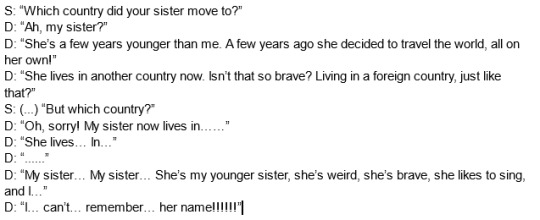
youtube
In both instances, something is misaligned within the Universe (an item existing in two places, someone remembering something they're not supposed to) and it is corrected through some sort of rewind. Also compare the dialogue above to when you try to give Mirabelle the Stylish Bow when you already own it.
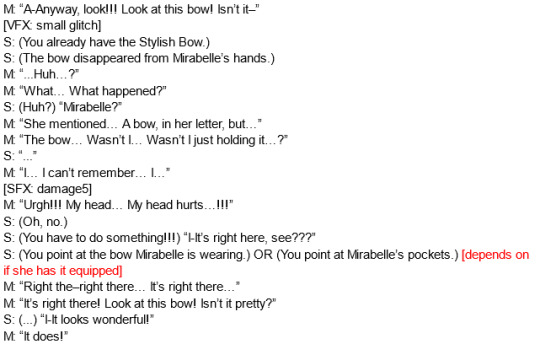
The world glitches, but Siffrin defuses the situation before the Universe has to intervene. Omitted from the screenshot is the fact that Mirabelle's portraits switch to happy from "catastrophically anxious" with no transition after Siffrin shows her where the bow is. Important to note is that when Mirabelle tries to recall receiving the bow, her head hurts, much like how trying to break the Island wish causes a headache.

The Universe leads you away from perception, and you can only follow.
My theory that I keep circling around is that through Wish Craft, the Island has been displaced temporally. The denizens of the Island, as well as the Island itself, still exist, but they are in the future. The Island is still loaded into the world, like how equipment is before you try to interact with it, and the Island cannot leave this quantum state, because it never actually went anywhere. The magnitude of the redaction event is so severe with the Island, because it is so much larger as an entity than a sword or a bow. There are of course things I don't really have pieced together, like why somebody would wish the Island into the future, how far into the future it is, or why equipment behaves this way. But it's the only Island theory I've seen that I have some level of confidence in, so I might as well lay out my cards for it.
#asks#this counts as an opinion right? idk#isat meta#isat theory#isat spoilers#isat#sorry i fucking love talking at people but im terrible at coming up with things without a hook so im just saying Any Words#also i cant have opinions without citing my sources.#i'm literally not even the first person to come up with this theory but it has been slowly eating away at my mind for months#and since that one person in isatcord who is smarter than me brought it up i havent really seen this theory in circulation#so i've been wanting to make a post compiling evidence for it for like. fucking forever#sorry to dunk you guys in images hell but like. I need you to See It. See my vision. of the futu- (is shot)#thank you feli as per always your website is so sexy andawesome and cool and it's the best forever.#(SORRY FOR THE YT EMBED BTW. TUMBLR HATES MEEEE)#this is not the most cohesive theory in the world via both my terrible explaining abilities as well as the holes i mentioned#but i think it's an interesting theory and i want to share it. sorry anon
650 notes
·
View notes
Text

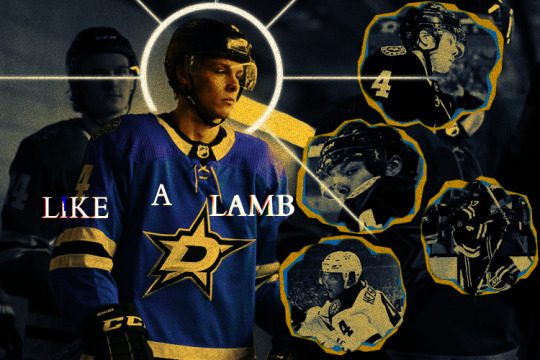
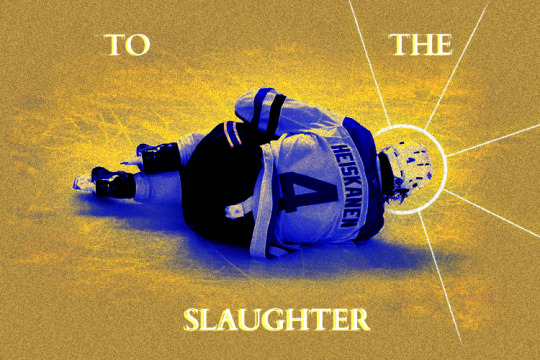


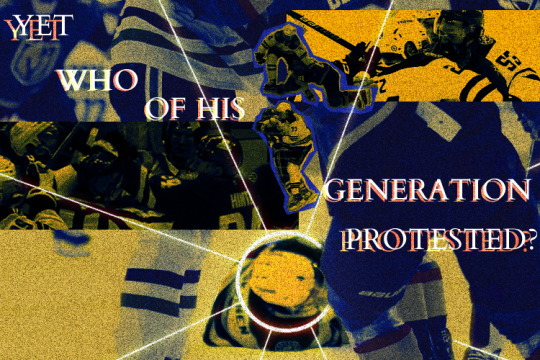
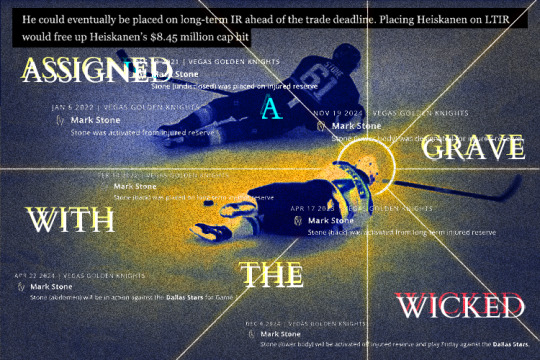



AFTER HE HAS SUFFERED, HE WILL SEE THE LIGHT OF LIFE AND BE SATISFIED
text: isaiah 53:7-13 photos: 1: icon sportswire, getty images // icon sportswire, getty images // dave sandford, getty images // chicago tribune, getty images 2: ronald martinez, getty images // icon sportswire, getty images // glenn james, getty images // ronald martinez, getty images // len redkoles, getty images 3: zak krill, getty images 4: ethan miller, getty images 5: steph chambers, getty images // screenshots from dal@sea 05.07.23 6: jeff bottari, getty images // steve warne, yahoo sports // screenshots from dal@vgk 01.28.25 // screenshots from nyr@dal 12.20.24 7: screenshot from dal@vgk 01.28.25 // sportsday staff, dallas morning news // puckpedia, stone transactions 8: michael martin, getty images // bill wippert, getty images 9: jeff bottari, getty images 10: ethan miller, getty images // ethan miller, getty images // jeff bottari, getty images // zak krill, getty images
#SACRIFICIAL LAMB ELECTRIC BOOGALOO LETS RUN IT !!!#i love Citing the Bible#an ode to miro's injured ass..... i miss her so bad and im so mad about it all the time#also sourced and alt texted so hard my brain fell out of my head . hope we appreciate!#miro heiskanen#dallas stars#cel weaving webs#injury tw#did i cite bible correctly . who knows
155 notes
·
View notes
Text








Inspired by an old shitpost @courtney-deserved-better made, except i assigned them to roti characters instead!
#cheese posting#i love plagiarism except it's not plagiarism because i cited my sources and it's not really the same thing i guess#I made very specific formating choices with this see i seperated the bits in black and the bits in white-#because the bits in black are from like reddit or something and the bits in white are from tumblr#hence. why it's also characters from different teams. so sorry anne maria you were perfect for the kinkshaming fruit comment.#td cameron#td zoey#td mike#td jo#td b#td staci#td scott#td dakota#total drama#total drama textposts#cheese's assigned textposts
141 notes
·
View notes
Text
Sometimes I just think about how absolutely TERRIFIED V is of Cyn vs just the solver in general. Her behavior in specifically episode 8 when Cyn is around is SOOO interesting.
V uses her knife hands unnecessarily through the whole show - she uses them just as much as, if not more than, her normal hands. It's probably a mix of show and a genuine defensive habit she's picked up by the time the show actually starts.
Even during episode 8, when she's being emotionally vulnerable to what she believes is N, the knives are out. She's probably tense, both from the fight AND from the emotional weight of spilling these secrets she's kept for ages.
And yet, when faced with Cyn, who she KNOWS is a threat... she retreats the knives, placatingly, and IMMEDIATELY begins pleading. This is V, who has never hesitated to resort to violence before. And it's not the solver itself she's scared of, its CYN. There's a brief moment in episode 3 where, when Uzi's solver activates, V startles and pulls her gun on her. In episode 4, when Uzi is possessed by the solver, V is clearly rattled, but she still has no problem taking action against and fighting Uzi. In these instances, she WAS afraid, but not enough to not be able to take action. But here? Her confidence completely falters. Her first instinct is to make herself as small as possible and try to reiterate that she can still do whatever Cyn wants of her (and she most definetly gets this behavior from having to serve the Elliotts on Earth, and from being disposed of even before that.. do a good enough job, or you can easily be thrown out. Something something, she's never been free, and at least being gleeful about murder means she's ok with it, so therefore she's not being forced!!! Any way to get autonomy back. But that's a side tangent in itself).



When Cyn nearly eats N's heart, V is in no way being prevented from trying to reach him. Sure, J is there, but V is clearly not afraid of J, having just fought her. But faced with the drone she worked so hard to keep safe being at risk, who she'd clearly done so much for... She freezes. Because this is CYN. And Cyn RELISHES mocking her fear, like she KNOWS V won't make a move to stop her.


And even down to what she would have surely thought was when she and N would definetly die, when she is STILL technically free to get up and fly away, she freezes. It's all she can manage is to vainly try to defend herself and keep N's core sheltered. She's too terrified to even move but she's still trying to keep him safe to the end.. (side note, if you pay attention to them once Uzi shows up, you can see she's still covering him with her sword while he's out of commission, which is very cute. Presumably she stays with him while he regenerates, which is why they show up late to the fight)


V is just soo interesting. She tries sooo so much to be cool under pressure and unbothered, but Cyn's presence is enough to stop her completely. Very fun and very revealing dichotomy to her character, and seeing how she effects V makes Cyn much more personally threatening than her just being an entity employing some vague cosmic power manages to do
#murder drones#serial designation v#she's soooo .#me when i accidently write things . I have assignments to do uagehhe . thoughts abt v to the void#lovee citing my sources (screenshots/ specific moments etc) its so fun and then ik im not like making stuff up#Like the solver has been a major part of what made her life hell right. But CYN is who used it in that way against her and the other DDs in#the first place. I am a firm believer in 'cyn and solver are separate / cyn at least started by choosing to get revenge on humans and#spiraled under the potential of that power + hatred of humans + incomprehensible hunger' because i think it is much more fun character wise#but even if your read is cyn = solver's dronesona then its still Cyn as V sees her that she's terrified of vs the cosmic superpowers alone
122 notes
·
View notes
Text
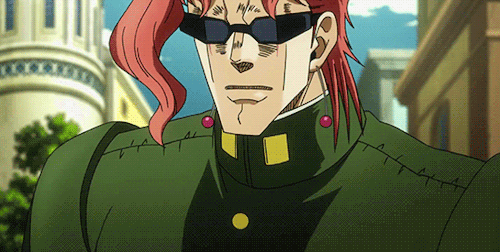
kakyoin and his parents are a really weird and underdiscussed part of stardust crusaders. on the watsonian level, there are multiple interpretations you could have of this, and i think its an interesting show of fanon for a character that is pretty beholden to fanon interpretations.
a fairly common consensus i've seen about kakyoin's parents are that they were abusive or at least maliciously negligent.
for the record, i am totally cool with this! kakyoin's family really isn't elaborated on in canon and you can take his subtleties a lot of ways. whether its whump for whumps sake or projection, people are free to interpret the empty holes however they wish.
that being said, i've found myself... idk. not opposed, but disinterested in that take, because the view of kakyoin and his family presented by canon feels way more interesting to me. here's my take & discussion on it!
[meta headcanon-ing below the cut]
from a very young age, kakyoin is an extremely private & emotionally isolated person. this is a trait he has developed from years of feeling like explaining himself to anyone was a futile juncture because no one would believe or understand him, not even his own parents.


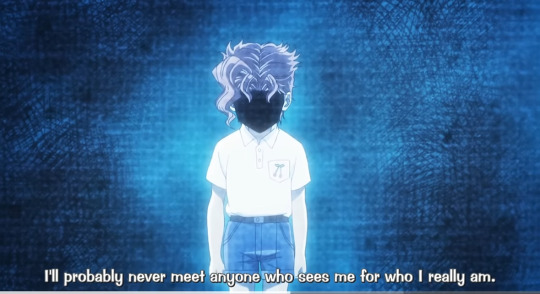


when kakyoin's teacher informs his mother abt his lack of desire to make friends, mrs. kakyoin (at least in the anime; cant attest to the manga) shows concern and almost... futility towards the situation. it isn't that the other students don't want to befriend noriaki. rather, noriaki doesn't want to befriend them.

we actually see a similar sentiment in holly, at least through subtext. holly is not wholly unconcerned by jotaro, but she is overly accepting of his poor behavior and struggles to acknowledge her son's flaws. holly views jotaro as younger and less in control of his behavior than he is to the point of willful ignorance.

kakyoin, meanwhile, is in a constant fight with himself over "letting" DIO manipulate and brainwash him. kakyoin is often victim-blaming towards himself -- he is weak and should've known better, should have never let his fear consume him, should have never lost control of himself and given it to DIO.
(dubiously canon material ahead, but shining diamond's demonic heartbreak is vital to my interpretation of kakyoin. treat this as you will.)
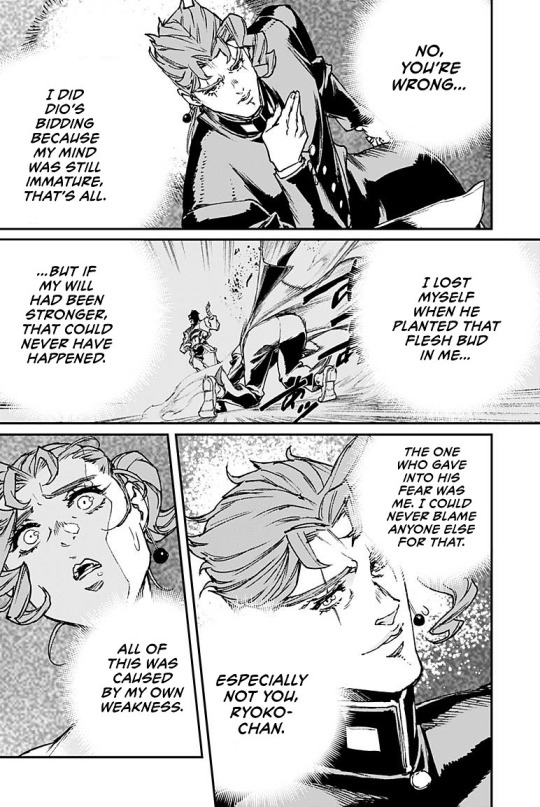
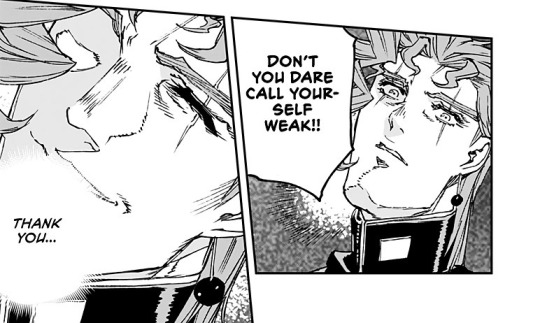
kakyoin is at his most distressed and personally tormented when he feels weak and vulnerable. he laments this weakness in himself -- immaturity, he calls it, although that is a translation -- and says no one is to blame for what DIO did unto him except himself.
and all of this, if you continue treating this version of events as canon, is with the added layer that kakyoin was literally protecting his 8-year-old cousin (ryoko-chan <3) while fighting DIO.
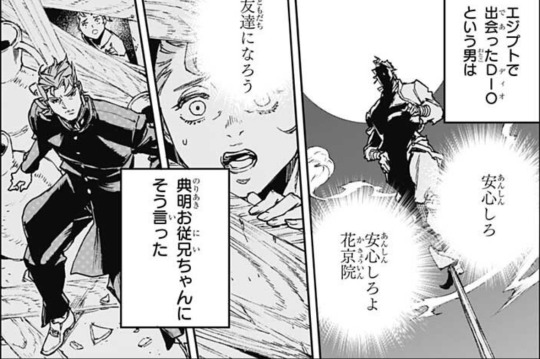
(as a side, hierophant green's lesser used powers (notably utilized while kakyoin has a fleshbud and almost never again) involve extreme control and precision. he is quite literally shown to puppet others from the inside using hierophant while operating his own body as well. kakyoin himself says no one can understand him without hierophant green; it isn't farfetched to say hierophant green's abilities reflect its user.)
all of this to say: i don't believe kakyoin's family was abusive in the traditional sense. i think kakyoin is the adultified child to jotaro's infantilized one.
i don't doubt kakyoin loves his parents, but it stands to reason that -- like jotaro with holly, if not more so -- there isn't a respect for his parents authority. adultified children often develop a lack of trust in the people and agencies that are supposed to protect them, like parents or teachers.
if kakyoin has felt like he could only trust himself and hierophant green his entire life, how is he supposed to seek support or protection from his parents? i honestly don't think he would. with hierophant at his side, it's easier (less disappointing) to uphold himself to this extreme standard of strength and maturity than be vulnerable with anyone.
noriaki's mother and father have eachother. noriaki has no one.

(taken from kakyoin's character profile, which you can see in full here.)
based on the flashback, i personally believe kakyoin's parents just... left him to his own devices. if noriaki doesn't want to make friends, it wouldn't be right to push him, is it? he's independent, well-mannered, an excellent student. responsible, trustworthy, far from a delinquent. so isn't it better to accept their son as he is?
even if they're not sure who he is?
as kakyoin is all shattered parts, crumpled against a water tower with a hole in his stomach halfway across the world, he looks at the clock and thinks of his parents.
...but not in search of comfort.

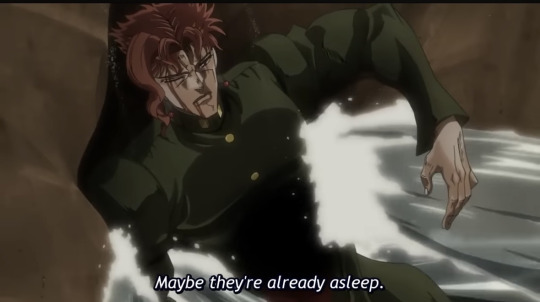
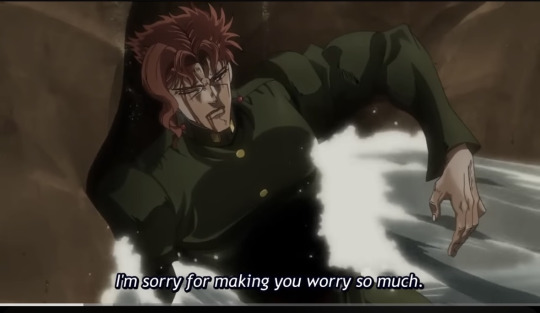
seeing as this is the first and only time kakyoin's parents are mentioned, i honestly wonder if kakyoin just... didn't mention them at all. if he didn't call attention, save the odd comment about being a student, to his age. to the immaturity he's so ashamed of.

(again from kakyoin's character profile.)
kakyoin went on this fifty-day journey to egypt without even consulting his parents, who earnestly believe he ran away from home and are worried to death about him.
and kakyoin KNEW they would worry, and then he knows he is dying, and all he can manage is thoughts of them sleeping and an apology. he doesn't regret going on the journey. even as he's dying, 17-year-old noriaki kakyoin treats his own demise as a necessary loss. in kakyoin's mind, life is something he could (should) wager for those he cares about, and thinking of those who care about him in return isn't enough to convince kakyoin otherwise.
all of this to say, i think kakyoin and jotaro are two sides of the same coin.
#jjba#noriaki kakyoin#stardust crusaders#jjba part 3#jotaro kujo#kakyoin is one of those vague characters you really have to squint at to understand and i do think this has made him victim to fanon#that doesn't totally align with what HAS been stated in canon. WHICH IS TOTALLY FINE#i am not in the business of ruining anyone's fun. there's leeway with my own interpretations that could lend themselves 2 other concepts#i just have a lot of thoughts on kakyoin and how critically lonely he is + his parents receiving their 17 year old son in a bodybag#even if one is a delinquent and one is a star student. jotaro and kakyoin are extremely similar at their cores#frankly i could extend this parallel into pt4 jotaro becoming an academic but i don't have the knowledge byond pt3 to write a whole lot#once again continuing my streak of “posts that are explicitly not jotakak but also extremely jotakak despite that”#holly kujo#ryoko kakyoin#my headcanons#this was supposed 2 be one of my random ass tangents and then i started citing sources LOL now its a meta post#if any of the mutuals have further thoughts on kakyoin please send them to my asks or reblog this or anything i would love 2 know#hes in my head 2day....
49 notes
·
View notes
Text
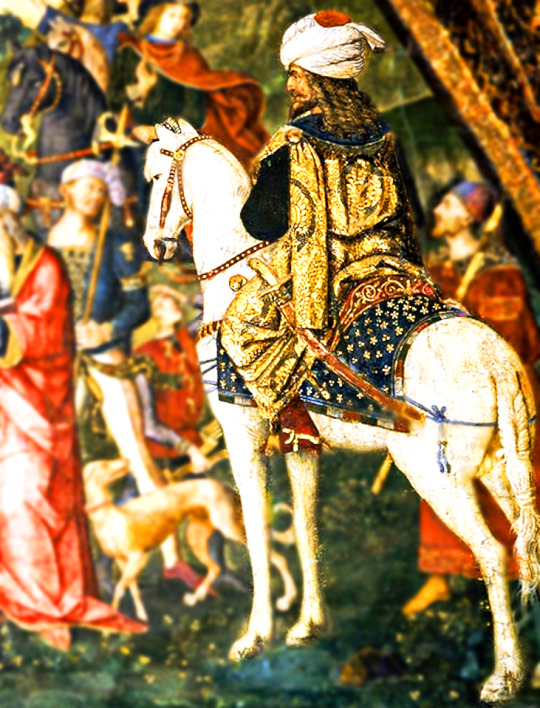
JUAN BORGIA, 2ND DUKE OF GANDÍA (1476–1497) — Biographical and Fictional Tidbits Masterpost ⚜️
Juan was the second son of Pope Alexander VI (Rodrigo Borgia) and his longtime mistress, Vannozza dei Cattanei. At 14, he inherited the title and estate of Duke of Gandía. When his father became pope, Juan, at just 17, was named Captain-General of the Papal Forces. His life, and especially his mysterious death, has fascinated people for centuries. Scholars often described Juan as strikingly handsome, looking much like his brother Cesare but with lighter hair. Known for his charm and sharp sense of style, he was sometimes seen as arrogant and carefree. Not everyone was critical, though: Giandrea Boccaccio, an ambassador from Ferrara in 1493, called him “naturally gifted,” while Tomaso Tomasi, in his book "Vita del Duca Valentino", described him as “a good and honest man with considerable ability.” Pope Alexander VI deeply favored his children, securing for them powerful roles in the Church and society. Juan, one of his favorites, received noble titles and military commands, setting him apart from Cesare, who was initially pushed into a Church career. The Aragonese chronicler Geronimo Zurita, however, wasn’t impressed, describing Juan as a “spoiled young man. haughty, cruel, and unreasonable,” full of grand ideas. Juan often strolled through Rome in his fine clothes, proud of his appearance. Like his father, he had a strong presence, and rumors swirled that Sancia, his brother Jofrè’s wife, was involved with both Juan and Cesare—a scandal that likely fueled Cesare’s resentment. He's often unjustly represented by biased scholars and showrunners. This post is intended to do justice to the historical figure, without either diminishing or absolving him.
THE SPECULATION SURROUNDING THE BORGIA BROTHERS' BIRTH ORDER: "No exact birth dates are known for Juan and his brother, and Juan was long thought to be Rodrigo Borgia and Vannozza dei Cattanei's eldest son, but modern research agrees that he must have been younger than Cesare. Evidence of this is provided by the tombstone of Vannozza, rediscovered in 1947, in which Giovanni is named as the second-born, and a papal bull from 1493, in which Cesare is described as the elder."
EXCERPTS FROM EMMA LUCAS' BIOGRAPHY:
LUCREZIA'S WEDDING (1493): “Juan and Lucrezia stepped forward to kiss the pope’s foot. They were followed by the ladies who once again passed in single file before the papal throne. A few of the more prominent women remained kneeling by the pope while the others moved to stand by his right. Among the prelates and other male guests at the pope’s left stood Cesare, an insignificant figure in ecclesiastical black who must have resented the stellar role of his younger brother. When all the ladies had kissed the papal foot, the bridegroom stepped forward in his Turkish robe and borrowed gold collar. He and Lucrezia knelt on cushions before the pope, and Alexander’s notary asked them if they were prepared to take one another as man and wife. Although they had never so much as exchanged a word, they both assured the notary that they did so ‘most willingly.’ Their replies were the signal for the bishop of Concordia to kneel beside them and slip the ring given the bride by her bridegroom on the ring finger of her left hand and a second ring on her index finger. During this ceremony, the commander of the papal army held an unsheathed sword over the heads of the newly wedded pair. The sword, a tradition at Renaissance weddings, was supposed to remind the bride of what awaited her should she forget her marriage vows. It was lowered as soon as the rings were in place on her fingers. The bishop then delivered a short sermon on the sacrament of marriage, and the ceremony was over. Juan again took his sister’s arm and led her and the other wedding guests into the Sala Reale, where the pope seated himself on his throne and the rest of the company found places on the cushions scattered on the floor.”
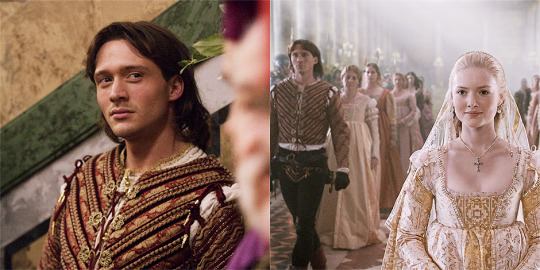
JUAN'S EXTRAVAGANT RETURN TO ROME FROM SPAIN (AFTER GETTING MARRIED), AND THE RUMORS INVOLVING SANCHA: “In August 1496, when Juan Borgia, Duke of Gandía, returned to Rome, it was taken for granted that he, too, must be sharing his sister-in-law’s bed. Alexander’s son, then twenty, had left his pregnant wife and year-old son, Juan II, in Gandía, setting sail for Italy in late July. Shortly before sunset on the evening of August 10, he arrived at the Porta Portese, mounted on a bay horse adorned with golden ornaments and tinkling silver bells. His red velvet cap was embellished with pearls; both the sleeves and front of his brown velvet waistcoat were embroidered with pearls and other precious gems. Those who saw him ride through Trastevere to the Apostolic Palace later found it easy to believe the rumor that this extravagantly dressed youth, with his jaunty air, had brought a ‘magnificent’ young Spanish woman as a gift for his father. However, whether this rumor or the subsequent rumors concerning Juan’s relations with Sancha had any basis in fact remains unknown.”
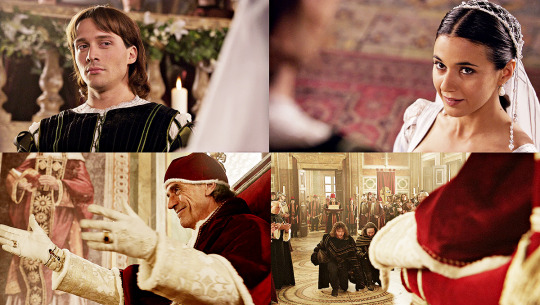
ALEXANDER'S GRIEF FOR JUAN / HIS VOW TO REFORM "Juan had wished to remain in Gandia, but his father had ordered him to return to Rome to lead the campaign against the Orsini. Hence, the pope’s conviction that they had killed his son must have left Alexander with the feeling that he partly was responsible for Juan’s death. In his agony, he saw the loss of his son as God’s way of punishing him for the worldliness of his reign, and he vowed to reform both himself and the church he headed. “We renounce all nepotism,” he told the consistory. “We will begin the reform with ourselves and so proceed through all the ranks of the Church till the whole work is accomplished.”"
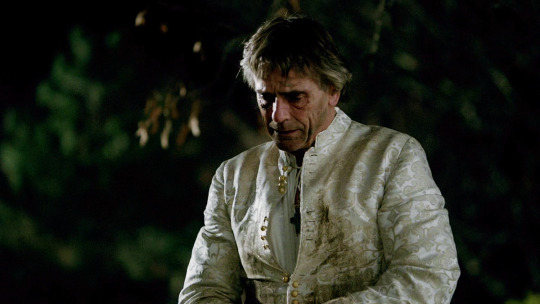
EXCERPTS FROM SAMANTHA MORRIS'' BIOGRAPHY:
SPOILED AND FLAWED: “Juan, who was always seen as Cardinal Borgia’s favourite, was described as incredibly spoiled but also incredibly handsome. His vain and overly self-indulgent character would only lead him to a sticky end later in life. He was later given the position of Gonfalonier—a military and political office in which the chosen individual would head the Papal armies—of the Church.”
JUAN'S TURKISH FLAIR / FRIENDSHIP WITH DJEM: “The young Duke of Gandía seemed to enjoy dressing up in Turkish clothing and going on jaunts with Prince Djem, a prisoner of the Vatican since he had been defeated by his brother, Sultan Bayezid, in a war of succession. Djem had been a prisoner since 1489, with a substantial bribe of 40,000 ducats per year to keep him confined in comfort.”
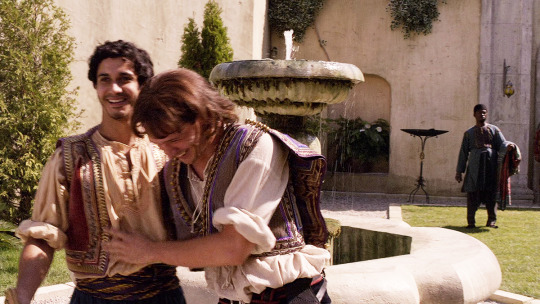
JUAN'S DAZZLING ARRIVAL IN ROME: “Juan returned to Rome in August 1496, leaving his pregnant wife, Maria, behind in Spain. Met at the Porta Portese by Cesare, it was evident that the 20-year-old Duke of Gandía had not outgrown his penchant for flamboyant clothing—in fact, he embraced ostentation in every form. He arrived in Rome dressed in a scarlet cap adorned with pearls, a brown velvet doublet encrusted with jewels, black stockings embroidered in gold with the sigil of Gandía, and a Turkish mantle of gold brocade. Even his horse was adorned with gold and jewels.”
JUAN & CESARE'S ROLES IN THEIR FATHER'S PLANS: “Both brothers knew they had their parts to play in their father’s plans. Unfortunately for Cesare, Juan was the center of Alexander VI’s military plans, which was precisely why he had been called back from Spain. For Cesare, his father was paving the way for a grand ecclesiastical career that would likely culminate in the papacy.”
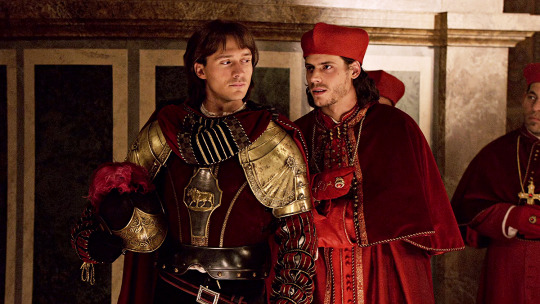
EXCERPTS FROM CHRISTOPHER HIBBERT'S BIOGRAPHY:
SWAGGER & SIBLING RIVALRY: “[Juan] could be seen swaggering about Rome in his gorgeous attire, excessively proud of his figure. Like his father, he possessed considerable sex appeal—it was widely rumored that Sancia gave her favors to both her husband’s brothers, further aggravating Cesare’s animosity. Cesare’s dislike of his brother intensified when Juan, though wholly unsuited to such a position, was chosen by Alexander VI as second-in-command to Guidobaldo da Montefeltro, Duke of Urbino and Captain General of the papal armies, which the Pope intended to deploy against the Orsini, a troublesome family who had sided with the French in their recent campaign in Italy and now controlled much of the Roman Campagna north and south of the city.”
THE NIGHT JUAN DISAPPEARED: “On Wednesday, June 14, 1497,” Johannes Burchard recorded, “Cardinal Cesare Borgia and Don Juan Borgia, Duke of Gandía, both dear sons of His Holiness, had supper with Donna Vannozza, their mother, and some other guests, at her villa near the church of San Pietro in Vincoli. After the meal, as night approached, the Cardinal suggested to his brother, the Duke, that they return to the Vatican; and so they mounted their horses and left with only one or two servants. They rode together almost to Cardinal Ascanio Sforza’s palace, built by His Holiness when he was vice-chancellor. At this point, the Duke told his brother he wished to pursue further pleasure before returning to the palace. Juan left his brother, dismissing all but a footman and a mysterious masked man who had joined him during the supper at his mother’s and had visited him at the Vatican nearly every day for the past month. Juan made room for this masked man to ride behind him on his mule, and they rode to the Piazza degli Ebrei, where Juan instructed the footman to wait an hour and then, if he had not returned, to go back to the Vatican. Soon afterward, the footman was attacked and gravely wounded. Found in a pool of blood, he was dragged into a nearby house, whose owner, too frightened to report the incident until the next morning, discovered the man dead. By now, Juan’s disappearance caused consternation at the Vatican Palace. Alexander VI hoped he had spent the night with a woman and wished to avoid being seen leaving her house in daylight. But as the Pope waited, his anxiety grew. He made urgent inquiries in the area where Juan was last seen. A timber merchant, who watched his wood unloaded from boats in the Tiber near the hospital of San Girolamo degli Schiavoni, reported that around midnight, he saw two men scout the riverbank, likely checking if the coast was clear. Soon after, two others approached stealthily, joined by a man on a white horse carrying what appeared to be a corpse. The group moved along the riverbank, stopping past a sewage dump. The body was pulled from the horse and thrown into the Tiber. The rider asked if it had sunk; assured it had, he noticed the corpse’s cloak floating and threw stones until it vanished. The five men then departed together. The merchant, questioned why he hadn’t reported this earlier, said he had seen at least a hundred bodies dumped there and thought little of it. Fishermen and boatmen dragged the riverbed and found Juan’s body, fully dressed, with a purse containing 30 ducats tucked into his belt. He had been stabbed repeatedly in his body, legs, and head. The corpse was taken to Castel Sant’Angelo, stripped, washed, and dressed in military uniform, then carried to the Church of Santa Maria del Popolo in a procession led by over one hundred torchbearers, ecclesiastics, and members of Juan’s household, all ‘weeping and wailing and in considerable disorder,’ Burchard noted. Alexander VI was distraught, ‘shutting himself away in grief and anguish, weeping most bitterly… From Wednesday evening until Saturday morning, he ate and drank nothing, and from Thursday morning to Sunday, he was quiet for no minute of any hour.’On Monday, June 19, the Pope announced at a special consistory: ‘The Duke of Gandía is dead. A greater calamity could not have befallen us, for we bore him unbounded affection. Life has lost all interest for us. It must be that God punishes us for our sins, for the Duke has done nothing to deserve so terrible a fate.’Recovering from his grief, the Pope vowed to reform the Curia, declaring, ‘We are resolved to think of the Church first, not ourselves or our privileges,’ and promising to ‘begin by reforming ourselves.’ He established a commission that issued a critical report on the Curia’s corruption. Yet, his zeal faded; after arresting Bartolomé Flores Morales, Archbishop of Cosenza, Alexander seized the official’s fortune and abandoned the reform program.”
JUAN'S NEPHEW / LUCREZIA'S BABY: "On March 15, 1498, according to the reports of the Ferrarese ambassador in Venice, [Lucrezia] gave birth to a boy who was christened Giovanni (Juan), in memory of her beloved brother, the murdered Duke of Gandía. The official bull declared that the child, delicately described therein as 'the Roman infant' (infans Romanus)."
VANNOZZA'S BURIAL NEXT TO JUAN: "Vannozza breathed her last at Rome, 26 November 1518, at the age of seventy-six. She was buried with conspicuous honours 'almost like a Cardinal' in the Church of Santa Maria del Popolo, near her son, the Duke of Gandia." "Interior of the Church of Santa Maria del Popolo, Rome. Juan Borgia was buried here following his murder in 1497, and his mother Vannozza was buried close by. There is no trace nowadays of their final resting place within the Church."
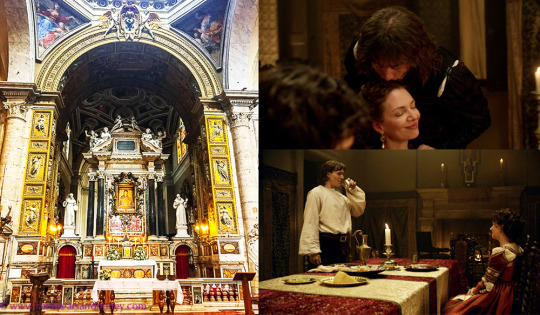
EXCERPTS FROM SARAH BRADFORD'S BIOGRAPHY:
FAREWELL TO JUAN / RODRIGO'S GRIEF: “Juan’s body was taken to Castel Sant’Angelo, where it was washed and dressed in brocade adorned with the insignia of Captain General of the Church. At six o’clock that evening, it was borne by noblemen of the Duke of Gandía’s household in a procession from Sant’Angelo to the church of Santa Maria del Popolo for burial in the family chapel, led by twelve torchbearers, palace clerics, papal chamberlains, and squires, ‘all marching along, weeping and wailing and in considerable disorder,’ as Johannes Burchard commented. ‘The body was borne on a magnificent bier so that all could see it, and it seemed that the Duke were not dead but sleeping,’ he recorded, while another observer remarked that Juan looked ‘almost more handsome than when he was alive.’ An elegant funeral oration was delivered for the Duke by the humanist Tommaso Inghirami, known as Fedra. Alexander’s grief for his beloved son was indescribable; even the stolid and normally unsympathetic Burchard was moved:‘The Pope, when he heard that the Duke had been killed and flung into the river like dung, was thrown into a paroxysm of grief, and for the pain and bitterness of his heart shut himself in his room and wept most bitterly. Cardinal Segorbe (Bartolomé Martí, a cousin of Rodrigo) and some of his servants went to the door, persuading him to open it, which he did only after many hours. The Pope neither ate nor drank anything from Wednesday evening until the following Saturday, nor from Thursday morning to Sunday did he know a moment’s peace.’By Monday, June 19, Alexander had recovered sufficiently to hold a public consistory, where he spoke of his son’s death in emotional terms: ‘The Duke of Gandía is dead. His death has given us the greatest sorrow, and no greater pain than this could we suffer, because we loved him above all things and esteemed not more the papacy nor anything else. Rather, had we seven papacies, we would give them all to have the Duke alive again. God has done this perhaps for some sin of ours, and not because he deserved such a cruel death; nor do we know who killed him and threw him into the Tiber.’”
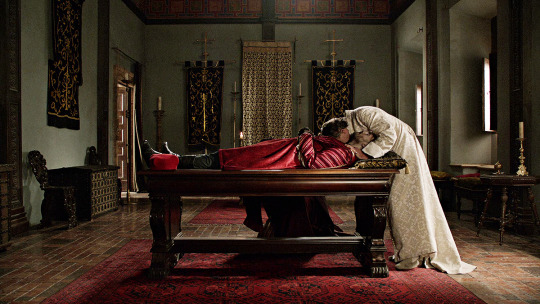
JUAN'S SHADOW HAUNTING CESARE IN 1500: “For the moment, however, Cesare could do nothing to further his plans; in that spring of 1500 everything turned on the outcome of events in Milan, where the French under Trivulzio were locked in a struggle for Lombardy with Ludovico, who had returned to his capital in triumph on 5 February. This forced inactivity seems to have thrown Cesare into one of those fits of nervous, almost superstitious, depression which tended to afflict him at such periods. He had presentiments of an early violent death, perhaps brought on by the prospect of his approaching investiture as Gonfalonier, which raised the spectre of his murdered brother Juan, invested with the same insignia only four years before.”
EXCERPTS FROM PAUL STRATHERN'S BIOGRAPHY:
JUAN'S PROMINENCE / CESARE'S ENVY: “At this point, the editor of Burchard’s diaries, Geoffrey Parker, interjects the telling point that: ‘As only an ecclesiastic, Cesare had very definitely a secondary rank at this wedding, where his brother Don Juan was the leading figure.’ He also mentions how other diplomats observed that Cesare was hardly noticeable amongst all the cardinals and clergy, ‘and was necessarily far outshone by his younger brother.’ There was no doubt that Cesare felt himself humiliated, and ‘jealous of Juan’s rank and opportunities.’ The ceremonies continued: ‘When all the ladies had kissed the Pope’s foot, Don Juan with Donna Lucrezia on his left, knelt on two cushions before the Pope.’”
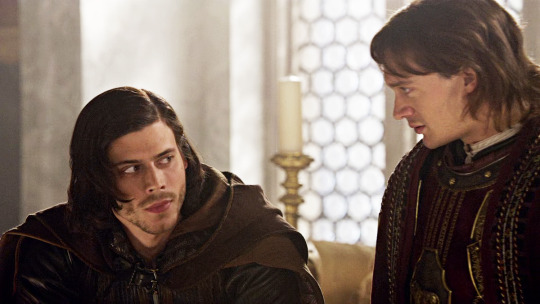
EXCERPTS FROM RAFAEL SABATINI'S BIOGRAPHY:
THE ARAGONESE CHRONICLER'S OPINION ON JUAN: “Juan, ‘the spoilt boy’ as the Aragonese chronicler Zurita described him, seems to have resembled Cesare in looks, though his hair was lighter in color. Handsome, vain, and self-indulgent, he lacked Cesare’s intelligence and self-control. As he grew up, observers remarked on the arrogance that was to earn him dangerous enemies.”
EXCERPTS FROM E.R CHAMBERLIN'S BIOGRAPHY:
JUAN'S EXOTIC FRIEND: SULTAN DJEM: “It was perhaps typical of Juan that he should make a friend of Djem Sultan, the brother of Sultan Bayezid II. Djem was now part guest, part hostage of Alexander, because Bayezid paid a very useful forty thousand ducats annually into the papal coffers as long as Djem, a potential rival, was kept in Rome safely out of the way. He both fascinated and horrified the Romans:‘The appearance of this barbarian prince is fierce and cruel, his body is well-knit and strongly built. He is above medium height, has one defective eye, and a head which is never still as he gazes threateningly around. If this venomous serpent breaks his bonds and escapes from the cage in which Christians have secured him, alas—what destruction and wounds he will inflict upon us if only he have power.’At thirty, Djem was nearly twice Juan’s age and exerted an extraordinary influence over him. Romans had double cause for scandal, witnessing the seventeen-year-old son of the Pope, dressed in an oriental turban, robes, and slippers, with a large curved dagger at his belt, walking arm-in-arm with the brother of the Grand Turk, the implacable enemy of Christendom. No one, however, was unwise enough to complain to the pontiff. The execution of Sforza’s wretched guest had shown clearly the limits of Alexander’s tolerance.”
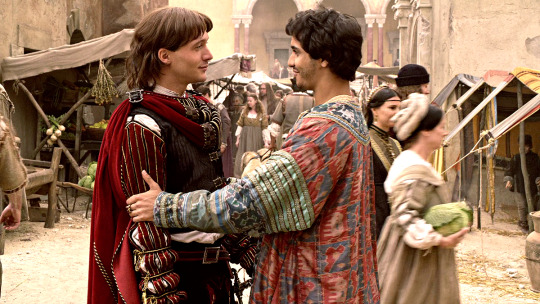
JUAN'S MURDER AS A TURNING POINT FOR CESARE: “The murder of Juan, Duke of Gandía, Duke of Benevento, Lord of Terracina and Pontecorvo, Gonfalonier of Holy Church, might have been designed as a key scene by a master dramatist, for it contained within it all the contradictory elements that were to make the Borgia story one of the great legends of Europe. The murder occurred at the precise moment needed to free Cesare and place him on his desired path, yet it is impossible to prove his responsibility. Details of the murder were subjected to an immediate and lasting blaze of publicity, yet its origins remain rooted in impenetrable obscurity. Its motives can be ascribed equally to political, sexual, dynastic, or frankly personal hatred. Persons closest remained silent, those more distant evolved their own explanations to account for the contradictions, and out of those contortions arose a legend that fatally besmirched the moral character of the entire family, even while it gave Cesare almost superhuman stature.”
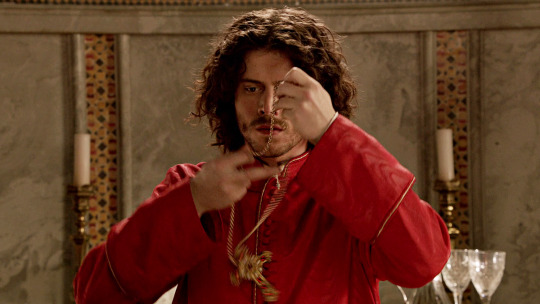
ALEXANDER'S HEARTBROKEN REVELATION: “The manner in which Alexander unbared his soul to the apprehensive College of Cardinals, lacerating himself, gave the clearest possible evidence of the reason why he had so favored Juan: he loved his son with a fierce, all-consuming love. His speech also provided posterity with a brief and almost uniquely undistorted insight into the true character of the man himself. All other actions of Alexander can be shown as simply the product of a ravenous worldly ambition; his desire to reform both the Church and himself could spring from no other source but spiritual remorse. The immense psychic shock of Juan’s death opened his eyes, if briefly, to what he had become, and his reaction was on a typically extravagant scale. It could not last. It was impossible for a man of sixty-seven not merely to abandon the habits of thought of a lifetime but to extricate himself from a situation that he had inherited with the tiara. But it showed that the spirit behind the splendid presence was not entirely atrophied, that under different circumstances he could have been a different man, and that it would not have been wholly blasphemous or ludicrous to predict that the Borgia family would, a generation later, give a saint to the Roman Church.”
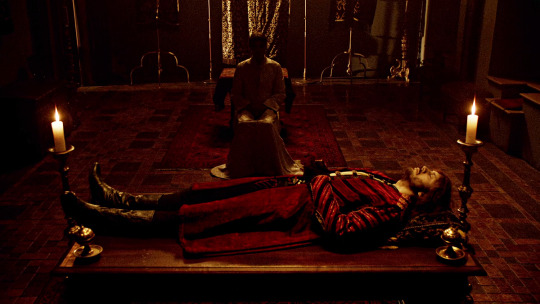
LUCREZIA'S SIBLING BONDS / BORGIA ENIGMA: “It was only in Lucrezia’s relationship with her brothers that there is some ambiguity, something to give color to, if not make credible, the charge of an illicit relationship. As far as Juan Borgia was concerned, that relationship undoubtedly sprang from nothing more than the powerful Spanish bond of blood, raised to a potent degree by the hero-worship any normal young girl would hold for a glamorous older brother. But an analysis of the attraction that Cesare held for Lucrezia leads straight into the very heart of the Borgia enigma.”
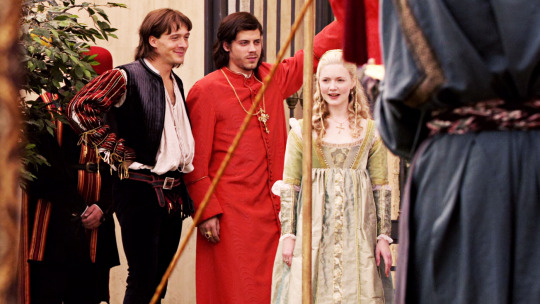
LUCREZIA'S GRIEF AND A SHATTERED PLAN: “In June occurred the murder of her brother Juan, which struck her with particular force. Not only was she attached to the handsome young braggart, there had also been a scheme for Juan to take her with him when he returned to Spain, that magical land which loomed so large in the Borgia consciousness. Had she been taken out of Rome’s festering atmosphere, her entire life probably would have changed.”
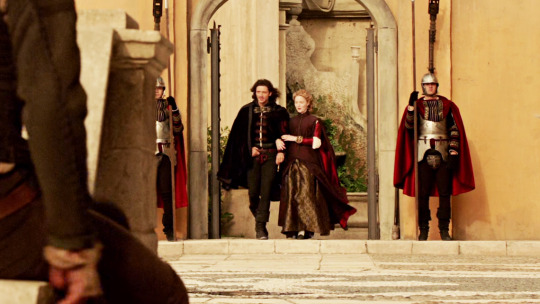
DELLA ROVERE'S CONDOLENCE LETTER TO RODRIGO REGARDING JUAN'S DEATH: “Della Rovere had made the first move toward a reconciliation. At Juan’s death he wrote a condoling letter to the shattered father. Alexander accepted the gesture; he may, perhaps, have been unusually vulnerable during the terrible days following the murder, but he was also well aware of Della Rovere’s high standing at the court of France. Fulsome letters passed between the two, and out of them arose Della Rovere’s appointment as papal legate to the court.”
GUICCIARDINI'S ACCUSATION OF CESARE'S FRATRICIDE: “Guicciardini summarizes Alexander’s hopes and plans for Juan, and then goes on to describe how Cesare, filled with hatred and jealousy of his brother ‘and besides, at his having a greater share in the affection of Madonna Lucrezia, their common sister, incited by lust and ambitions—powerful incentives to the commission of any shocking piece of villainy’ planned the murder of Juan.”
EXCERPTS FROM CARLO BEUF'S BIOGRAPHY:
ACCUSATIONS AGAINST CESARE FOR JUAN'S MURDER: “In a relazione—a report—delivered to the Council in Venice on 28 September 1500, Paolo Capello declared: ‘He [Cesare] killed his brother the Duke of Gandía and had him thrown into the Tiber.’ Capello had been appointed by the Republic orator to Rome at the end of May 1499, two years after the murder.Machiavelli, always a wary historian and an admirer of Cesare, repeated with variations: ‘…About the middle of the month the Duke of Gandía died. At that moment they did not know by whose hand; later it was held as sure that the murder had been committed by the Cardinal of Valencia, or by his command, because of envy or because of Madonna Lucrezia.’Also Guicciardini, a great historian but a bitter enemy of the Borgias: ‘…[Cesare] caused him [Gandía] to be killed one night as he rode alone in the streets of Rome, casting his body in the river Tiber.’ Sigismondo de’ Conti, secretary to Julius II and author of a ‘History’ of his time, in speaking of Pope Alexander and his family: ‘For quite some time there had been a question as to who had killed Juan, Duke of Gandía. It was suspected that it was Il Valentino [the name by which Cesare was later to be known] because of rivalry in power and that he [Juan] was better loved and the favorite of his father Alexander, whom he resembled in the eyes and in all his features.’”
EXPLORING CESARE'S INCENTIVES FOR MURDER: “First of all, as no one who is not a maniac commits murder without compelling incentives, let us see what, in Cesare’s case, these may have been. The passional motive may be ruled out, although there was a time when it found credence all over Italy and even writers of the caliber of Machiavelli deemed it worth registering. Only unsubstantiated gossip, mostly hatched in Pesaro, suggests that Juan’s relations with Lucrezia were such as to arouse Cesare’s jealousy. Even a superficial knowledge of his amorous life disposes of Sanudo’s hypothesis that Sancha, whose favors both he and Juan enjoyed, may have been the cause of the tragedy. There are other motives, however, that cannot be so lightly set aside.”
CESARE'S TRUE MOTIVES FOR JUAN'S MURDER: “It has been said, as proof of Cesare’s innocence, that he did not derive any advantage from Gandía’s demise, for Gandía’s fiefs, titles, and moneys went, as expected, to the dead man’s son. But to imagine that Cesare might have wished to eliminate Juan merely to appropriate his possessions is grossly to misunderstand Cesare’s character and aims. What he coveted was not Gandía’s principalities and revenues, but his position at the Vatican with all the opportunities it entailed. Once he had this firmly in his hands, revenues and titles could be expected, as they actually did, to pour in upon him as naturally as autumn rains on a field. Besides, it should not be overlooked that Cesare assumed the task of administering the estate in the name of Juan’s son during the latter’s minority, an arrangement certainly not sponsored by the widow, who loathed him with all her heart and openly accused him of being her husband’s murderer.”
EXCERPTS FROM ARNOLD H. MATTHEW'S BIOGRAPHY:
JUAN'S RISE AND SPLENDOR IN RENAISSANCE ROME: “This Juan (Don Giovanni) was Rodrigo’s second son, born in 1474. At the time of his father’s promotion to the Papal See, he was already in a wealthy and influential position. When the news of the election reached him, he journeyed to Rome to join the other members of his family. He originally intended to stay only a short time there and, therefore, sent his wife back to Spain. However, his visit prolonged itself, and on June 12, 1493, he was present at the wedding of his sister Lucrezia with Giovanni Sforza, where he presented her with a goblet worth seventy ducats. On June 16, he went with his brother Cesare to receive the Spanish ambassador. On this occasion, they displayed so much pomp and magnificence that they might have been taken for monarchs. From a letter from the King of Naples appointing him Duke of Sessa and Prince of Teano, it is evident that he tarried in Rome until the beginning of August, when he returned to Spain onboard a Spanish galley laden with valuables on which the Roman goldsmiths had been working for two months. Nothing more is heard of him until August 10, 1496, when he came back to Rome. He made his entry into the capital with great ceremony, accompanied by such as his brother, Cardinal Cesare Borgia, and the papal court.”

JUAN'S RISE, FALL, AND UNEXPECTED LEGACY: “Soon afterward, the Duke of Gandía was appointed Captain of the Church by the Pope, and, in spite of a conspicuous lack of military ability, on June 7, 1497, he was made Duke of Benevento by the unanimous vote of the College of Cardinals. Tomaso Tomasi represents Juan as a good and honest man of no mean ability; there is little doubt, however, that he led an immoral life, giving himself up to gambling and other, less pardonable, excesses. His father loved him with a fierce, passionate love, and his tragic death, in June 1497, of which we shall hear anon, was a source of deepest sorrow to him. He left two children: Juan, third Duke of Gandía, and a daughter, Isabella, who were piously educated by a saintly mother. Juan married an illegitimate daughter of the Archbishop of Zaragoza, himself a bastard, and, strangely enough, the first child of this alliance—which united so much family iniquity—was Francisco Borgia, fourth Duke of Gandía, who afterward became a saint.”
EXCERPTS FROM GENEVIÈVE CHASTENET BIOGRAPHY:
JUAN'S EXTRAVAGANCE AT LUCREZIA'S WEDDING: “Cesare, Archbishop of Valencia, took his seat to the Pope’s left while Juan remained on the threshold of the room and let his sister advance towards the throne. With her light step and as if moved by an inner dance, Lucrezia seemed not to touch the ground, one could hear only the rustle of her dress and the clink of her jewels. Her gaze full of candor fixed on the Head of the Church, she approached, bowed deeply, brushing her lips against her father’s mule. Juan wears a velvet hat edged with pearls and a brown coat with sleeves embroidered with precious stones, ‘This prince of comedy covered in jewels,’ Burchard ironically relates, nevertheless succeeds in astounding the Romans, who nevertheless know a thing or two about luxury.”
BORGIA MAGNIFICENCE AT LUCREZIA'S WEDDING: “One can imagine Lucrezia casting a delighted glance over all this jubilation, both preoccupied and amused by her role as bride. Amid the provocative vivacity of Giulia Farnese, the true triumphant of the party, the magnificent vigor of her father, the beauty and elegance of her brother Juan Borgia, the mysterious power of fascination exercised by Cesare, her other brother.”
EXCERPTS FROM MARIA BELLONCI'S BIOGRAPHY:
A BELOVED INTERCESSOR: “The culmination of all Alexander VI’s maneuvers was the beautiful Juan, Juan the beloved, the very heart of his father. One could not have had a ‘better or wiser intercessor’ to obtain papal favors, said Vannozza’s husband, Carlo Canale, to the Marquises of Mantua when he requested the gift of horses from the famous Gonzaga stable for the one he called with cheerful nonchalance ‘my son-in-law.’ In dealings with His Holiness you could have no better intercessor than His Lordship, because he is the eye of His Holiness Our Lord. Juan could rightly believe himself destined for a brilliant future.”
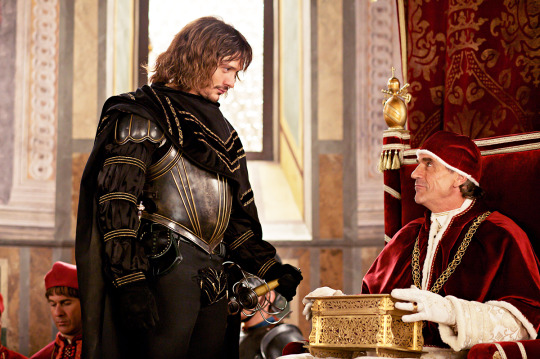
JUAN'S HEDONISM: “Young, handsome, rich, Juan Borgia desired nothing more than to enjoy the advantages offered by life and to spend his time in the company of women who pleased him: courtesans who satisfied his dissolute temperament; severely guarded women or young girls, who excited in him a certain need for adventure and gave him the illusion of having won a battle, the only kind of war he was willing to engage in. He desired anything that could arouse surprise and earn him the admiration of any audience: he was immoderately vain and a great snob. One can therefore imagine how much he found to his taste the most picturesque character then in Rome.”
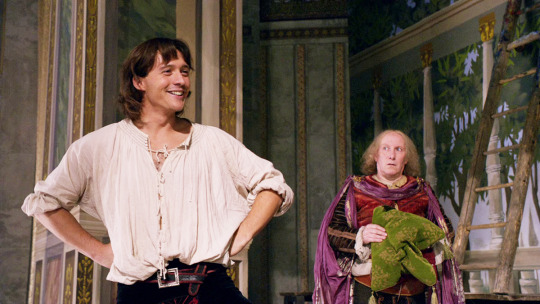
THE RIGHT EYE OF THE POPE: “The culmination of all Alexander VI’s maneuvers was the beautiful Juan, Juan the beloved, the very heart of his father. One could not have had a ‘better or wiser intercessor’ to obtain papal favors, said Vannozza’s husband, Carlo Canale, to the Marquises of Mantua when he requested the gift of horses from the famous Gonzaga stable for the one he called with cheerful nonchalance ‘my son-in-law.’ Juan could rightly believe himself destined for a brilliant future. Juan of Gandía, ‘the right eye of the Pope,’ seemed to all destined to ensure the greatness of the Borgia house.
LUCREZIA'S WEDDING: "One can imagine Lucrezia casting a delighted gaze over all this jubilation, both preoccupied and amused by her role as bride. Between the provocative vivacity of Julia Farnese, the true triumphant of the party, the magnificent vigor of her father, the beauty and elegance of her brother Juan, the mysterious power of fascination exercised by Caesar, her other brother."
JUAN'S WEDDING, THE SCANDAL THAT FOLLOWED, AND HIS PLEA TO HIS FATHER: "Accompanied by the proud and restless wishes of his father, on August 2nd, Juan was leaving: he had not yet arrived in Civitavecchia when a messenger from the Pope reached him, bearing a new list of instructions. Among these was the directive to pay meticulous attention to his appearance: to take care of his complexion and hair, and above all, to wear gloves and not remove them until he reached Barcelona. "The saltiness spoils the skin," explained his far-sighted father, "and in our country, beautiful hands are very important." On August 4th, Juan embarked on one of the four galleys that formed his retinue, and on the 24th, escorted by his advisors and guardians, he landed in Barcelona. There, waiting for him, were his bride and her father, Don Enrico Enriquez, cousin of the king—a "very wise and expert person" who, a few months earlier, in March, had caused a stir regarding the conscience of papal morality. This had prompted Datary Giovanni Lopez to write a curious letter from the Vatican in defense of the Borgia family, denying all "sinister information" and declaring: "Time will give an account of this glorious life."
Convinced—if not entirely, at least sufficiently—Don Enrico now led his sixteen-year-old daughter to meet her groom. Juan arrived looking handsome, smiling, and with his gloved hands full of gifts—truly embodying, for a young girl, the insipid yet adorable dream of Prince Charming. The wedding took place in the days that followed, in Barcelona, in the presence of the King and Queen of Spain and their court. After the ceremony, the newlyweds remained in Barcelona for some time before moving on to Valencia, and later to Gandia. However, pessimistic reports about Juan's behavior soon reached Rome. It seemed that he was so inattentive to his wife that he had not even consummated the marriage, leaving her alone while he wandered at night with reckless companions. Moreover, in just two months, he had squandered two thousand six hundred gold ducats on gambling and riotous activities, and had even attempted to seize the revenues of the duchy.
When this news reached the Pope, one can imagine his offense. He feared, more than anything, the wrath of the King of Spain, who certainly would not have tolerated such contempt from Juan towards a bride of royal blood. Alarmed and ever concerned with the public image of his children, Alexander VI wrote a letter full of stern reproaches to Juan on October 30th from Viterbo. He also instructed Cesare Borgia to write a letter on the same matter, adding a few lines in his own hand to the draft. Additionally, he had the same cardinal write to Don Enrico Enriquez, the bride's father, in a previously unknown letter filled with protests, assurances, and guarantees. Juan promptly replied to his father at length, explaining himself. He admitted feeling some fear of his father's anger, describing this fear as "the greatest anguish I had ever felt." He could not understand how the Pope could have believed "sinister reports written by some malicious people against the truth," when his marriage had, in fact, been consummated. To support his claim, he cited the testimony of the Archbishop of Oristano, Mossen Pertusa, Fira, and other trusted individuals. Furthermore, he reminded the Pope that he had even been informed of the specific day, hour, and minute of the consummation of the sacrament.
As for his night walks, Juan admitted they were true but argued they were harmless. He explained that he had been accompanied by Don Enrico, his father-in-law and a relative of the king, as well as other "knights and honorable people," merely strolling along the coast as was customary in Barcelona. This last statement, with its appeal to the customs of his native land, was intended to sway Rodrigo Borgia's Spanish heart more than any other excuse—it had been included deliberately.
"What worries me," Juan added, "is that Your Excellency has given credence to things that have no semblance of truth." Despite Juan's attempt at portraying himself as a slandered virtuous man, his sincerity failed to convince anyone. Other letters followed between father and son, with the Pope often reproaching and Juan justifying himself. Juan's letters revealed prodigality without grandeur, selfishness, and a superficiality of judgment, in contrast to the indulgent yet discerning attitude of Alexander VI. The Pope, despite his son's repeated assurances, could not remain calm. However, he finally breathed easier in February 1494 when news arrived from Spain that the heir to the Duchy of Gandia was soon to be born. With his doubts dispelled and now confident in Juan's future, Alexander VI turned his attention to providing for his younger son with the same zeal."
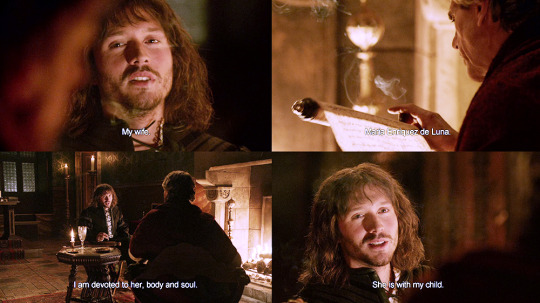
THE SHATTERED DREAM OF JUAN'S PROMISE TO LUCREZIA: “At San Sisto, Lucrezia had learned of the death of Juan certainly with great pain, because she had a passionate attachment to her family. On this elegant and brilliant brother she thought she could count in the future and in all circumstances. It can be supposed—and one will recall Juan’s interest in his sister—that, with the easy benevolence of wealthy and fortunate men toward the women of their own household, Juan had made her great promises to help resolve the vexing problem of her future. Among others, there was the promise, repeated by the chroniclers right after the flight of the Count of Pesaro, to take her with him to the dreamland of the Borgias, Spain. Sudden and cruel death, uncertainty, and isolation had followed all these plans.”
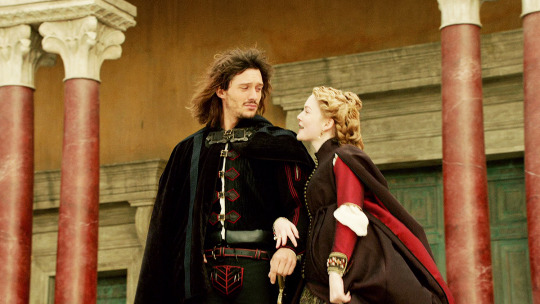
WHAT MACHIAVELLI HAD TO SAY ABOUT "THE PRINCE'S" BROTHER:
“Cesare and his brother Juan were turned into rivals for their sister Lucrezia’s sexual favors. Machiavelli, writing about a year after Juan’s murder, recorded simply that it had taken place and wisely refrained from speculating as to motive. Some years later, however, when he was working his notes into a more permanent form, he altered his cautious statement and gave gossip the status of historical record. ‘At the time it was not known who did it, but later it was said that it was the Cardinal of Valencia [Cesare] who was the author of this murder, either through envy—or on account of Madonna Lucrezia.’ Busy tongues had obviously turned the rivalry of Cesare and Juan for their sister-in-law Sancha into an incestuous rivalry for Lucrezia, and Machiavelli, without troubling to track down the source of his story, added it to the store of Borgia scandal—though with that saving phrase ‘it is said.’ Even now, the story would probably have been dismissed by posterity, for Machiavelli’s works, despite their manifest genius, are as manifestly infused with polemics.”
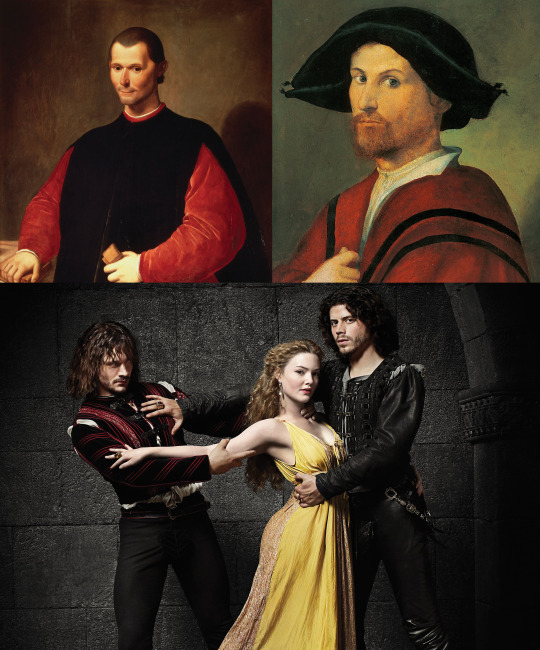
====== HISTORICAL FICTION ======
EXCERPTS FROM MARIO PUZO'S "THE FAMILY":
JUAN'S SPANISH BEAUTY: “Juan Borgia was almost as tall as Cesare, but slighter of build. Like his brother and father, he was an attractive man but with a difference. He had the slightly slanted eyes and high cheekbones of his Spanish ancestors. His skin was bronzed from his long hours of riding and hunting but there was often a look of suspicion in his widely set dark eyes.”
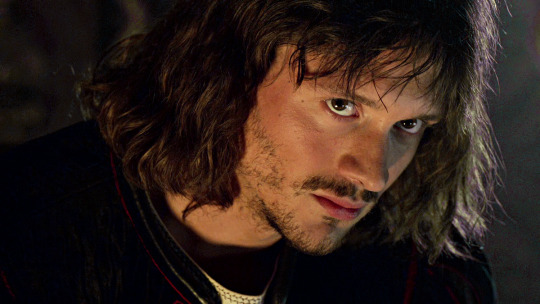
JUAN'S SENSITIVITY, CRUELITY, AND MASK OF DISDAIN: “Juan, on the other hand, was more sensitive to personal injury, though quite insensitive when it came to others. He had a cruel streak, and most of the time wore a sardonic expression. He had none of Lucrezia’s easy grace, and none of the charisma of his older brother. Still, Alexander was very fond of him, sensing in him a vulnerability that Cesare and Lucrezia did not have.”

EXCERPTS FROM SARAH DUNANT'S "BLOOD & BEAUTY":
JUAN'S LION-LIKE VIGOR: “[Juan] is cocky and proud as a young lion. Juan with his mane of red-brown hair and a nose as straight as his own is beaked. Juan, so fresh and smooth that there is almost a girl’s prettiness to his face. But at nearly seventeen, there is nothing feminine in his behavior. Such boundless energy, such outrageous confidence. Where others see vanity, Alexander sees only promise. A young man roaring and chafing at the bit, ready to take on the world. And why not? When did life ever reward those who cowered in its corners?”
====== LETTERS ======
JUAN'S HOMESICK PLEA TO LUCREZIA (1494): “I feel a great desire to have news of you, for it has been a great while since I received a letter from you. You can imagine, my lady sister, what a great joy your letters are to me, for the love I bear you. So, do me the favour of writing for my consolation, because already the Duchess, my wife, complains a great deal of you, that you have never written despite all the letters sent to you from here. She commands us to ask you to write; she is pregnant and in the seventh month. It seems two years since I left. I have written to His Beatitude to order my departure, and from day to day, I hope for this order… I commend myself to the lord of Pesaro, my dear brother, and similarly to Madama Adriana and Madama Julia…”
JUAN'S JOYFUL CONGRATULATIONS TO CESARE (1493): "I cannot say what joy I felt on learning that Our Lord, His Holiness, by his great mercy, created your Reverend Excellency a Cardinal, as I was informed by a brief of His Holiness. This is the news I was hoping for with the greatest desire. Make good use of it, and may it please divine mercy for the salvation of the soul, and prolong the days of His Holiness, with whom we find our consolation, and receive from it many graces. May I see your Reverend Excellency grow, as I desire, all in the service of God and of His Holiness. As for me, I arrived in this city on Thursday, October 10; and being at Puçol, which belongs to your Excellency, three leagues from Valencia, many Valencian knights and lords were already with me. And now, with much love and kindness, they visited me until midnight. I am much grateful, Most Reverend Excellency, for this city and these Valencian lords, who, in truth, are very nice people, magnificent and well-dressed, and of good education. All, by their merit, show me a great deal of love, and they take such care of me that, to prove them right on this point, I cannot be longer than this, except to write that I remain praying with divine mercy to protect your Reverend person, as I wish it. From the obedient brother and son, Duke of Gandia."
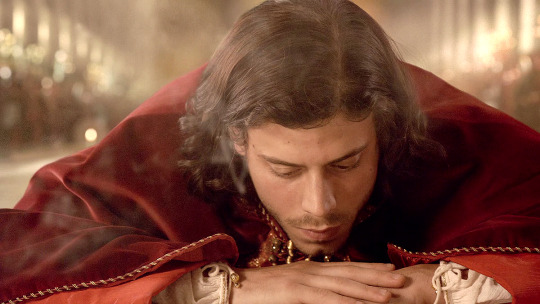
CESARE CELEBRATING JUAN'S RISE/RODRIGO'S TRIUMPH (1493): "For your consolation, I inform you that, thank God, His Holiness, Our Lord, is much better, health restored, joyful, content, and triumphant, especially now that he has come to an agreement, through the intermediary of the Lord Virginio Orsini, with the Majesty of the King of Naples, with immense honor for His Holiness and Your elevation. Indeed, His Holiness, who loves you so dearly and thinks of nothing else but to make you great, has obtained for Your Lordship from said Majesty the most beautiful State in the kingdom, that is to say, the principality of Tricarico and the county of Carinola and Claramonte, which offers 12,000 ducats of income, which I am all the more happy for, for the very great love I have for you. We are quite right, my lord brother, to continually embrace the land that His Holiness treads, and to always pray for the life of he who has elevated us so greatly. Because of that, I ask of you that you continue to serve and please His Holiness, so as to show him gratitude on our part in all we can. This agreement was obtained ten or twelve days ago; and you will be surprised to know I haven’t seen this agreement beforehand, finding myself somewhat ill when such a peace was concluded, one which I constantly intervened in from beginning to end. I left for the baths of Stigliano, where I stayed until last night, having returned healed, by the grace of Our Lord God. During today’s consistory, Most Reverend Lord Cardinal Monreale [Juan de Borja Lanzol] was made legate for Naples, where he will travel over the next six days to crown the King. Shortly after, the illustrious Lord Don Gioffre, our very dear brother, will leave, accompanied by the illustrious Lady Sancia, his wife, with whom will come Lord Virginio [Orsini] and many others. I am sure that he will be received triumphantly, as the letters of His Holiness, Our Lord, will inform Your Lordship with greater detail, to whom I recommend myself, and no less to the illustrious Duchess, my very dear sister. From your brother who loves you as he loves himself, C. Cardinal de Valencia."
SAVONAROLA'S SPIRITUAL CONDOLENCE TO RODRIGO ON JUAN'S DEATH (1497): "Most Blessed Father, after kissing your blessed feet: Faith, supported by innumerable miracles and the divine works of the most famous men, by prophecies as well as arguments and doctrines, and continually strengthened by the blood of countless martyrs, is the one and only true peace and consolation of the human heart. For in that it transcends sense and reason and rests on the divine power and goodness, bearing the soul away to things invisible, it makes us be not in this world and imparts to us a greatness of soul. By it we can not only bear patiently all adversities, but even glory in tribulations. Certainly it is written: “Whatever befalls the just man will not sadden him” [Prov. 12:21]. The just man, indeed, is one who lives in faith, as the Lord attests, Who says: “My just one shall live in his faith” [Abac. 2:4]. Blessed, therefore, is the one who is called by the Lord to this grace of faith, without which no one can have peace, as Isaias says: “There is no peace for the wicked, says the Lord, my God” [Is. 48:22]. And so, let Your Holiness, Most Blessed Father, respond to this, because suddenly “sorrow may be converted into joy” [Joh. 16:20]; for sweet is the Lord, Who in the immeasurableness of His kindness passes over our sins. Every other consolation is trivial and false, because time is short and we transmigrate to eternity; faith alone brings joy from a distant land. What I have heard and seen with my eyes and touched, these things I speak [I Joh. 1:1-3], for the sake of which I willingly suffer persecutions so that I might merit Christ and escape eternal punishment, knowing that “it is terrifying to fall into the hands of the living God” [Heb. 10:31]. Therefore, let Your Blessedness encourage the work of the faith for all men, “on account of which I labor unceasingly even to the point of imprisonment” [II Tim. 2:9], but lend no ear to the impious, and the Lord will give you “the oil of gladness […] in return for the spirit of mourning” [Is. 61:3], for the things which I have prophesied and prophesy are true and from God. “But who has opposed God and had peace?” [Job 9:4] These things, Most Blessed Father, I humbly write to you — a few words to the wise — with charity as my guide, desiring Your Blessedness may be truly and not falsely consoled in the Lord, because “when His anger is enflamed suddenly, blessed are all they who trust in Him” [Ps. 2:12]. And so “may the God of all consolation” [II Cor. 1:3], “Who has led forth from the dead our Lord Jesus Christ, the great Shepherd of sheep,” [Heb. 13:20] in the blood of His everlasting covenant” [Heb. 13:20], “console you in your every tribulation” [II Cor. 1:4]. Farewell. From Florence, the seventh Kalends of July 1497. The son and servant of Your Blessedness, Brother Girolamo Savonarola, of the Order of Preachers, by his own hand."
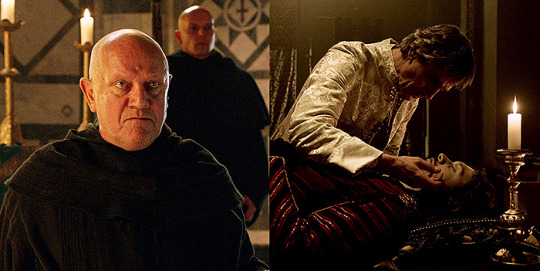
JUAN'S PORTRAYAL BY DAVID OAKES IN "THE BORGIAS":
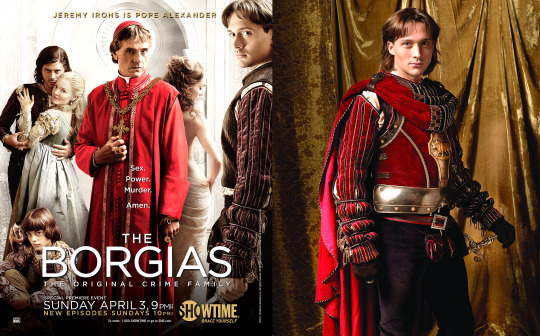
(I picked only Juan's portrayal in Showtime's The Borgias, not only because his portrayal in other media is almost a one-note character, but because Oakes' interpretation of Juan goes beyond the original intent for Juan. He not only gave him depth, humanity, and rich layers, but also made him a very authentic character, despite the narrative attempts to diminish him in favor of Cesare)
JUAN'S FLAIR, FLAWS AND BRAVADO: "There is some question as to whether Rodrigo is actually Juan's father, so he feels constant need to prove he is a real Borgia, Juan has a lot of flair and personality, but he's also perhaps a bit naïve and a little weaker than his brother. That compels him to compensate with bravado, which makes him dangerous." (⚜)
THE LOYAL OUTCAST OF THE BORGIA: "He’s spent the entire time being picked upon and bullied by the family. I think personally from where Juan stands he sees the hypocrisy in the family, how they can do one thing and say another. As far as Juan is concerned he’s always had the best interests of the family at heart, however misguided that might be and doesn’t quite comprehend why nobody understands that. Nobody seems to understand that what he does, he does for the betterment of the Borgia clan and never waivers from that. He does that in ways that perhaps aren’t sanctioned by the church or sanctioned by family law.” (⚜)
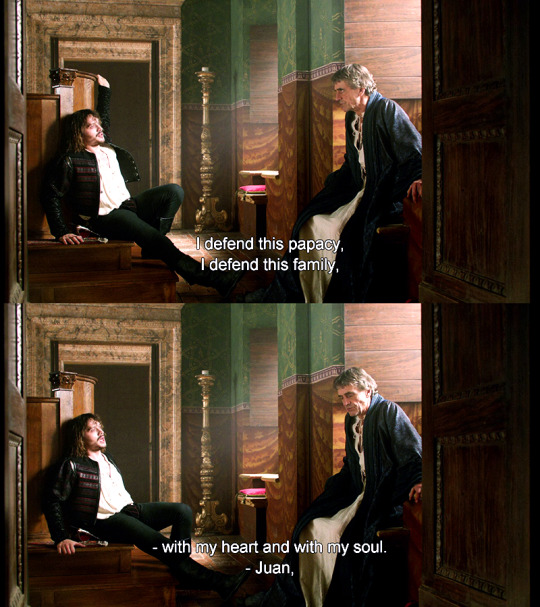
HUMANITY BEHIND ARROGANCE: “You got this wonderful meeting between what [creator] Neil Jordan wanted initially for Juan to be, and what they ended up with having cast me in the role. I don’t try to make him likeable. I try to just make him human. It goes beyond that. I was always trying to show Neil that behind the arrogance and uselessness, there sort of was this true human being that desired to impress people.” (⚜)
HEARTFELT EAGERNESS AND HEROISM: “One thing that I’ve always said about Juan is that every action that he does is heartfelt and genuine. When it was the war against the French, he was there and he was going to go to war, even though he knew he was going to die. He saw them getting ripped apart, but he was there and he was going to do it. I believe if Lucrezia hadn’t come over, he would have led all his troops into death. I don’t think there’s anything that he’s done which was through general cowardice. In terms of his survival, he died how he lived, and that’s laudable, in itself.” (⚜)
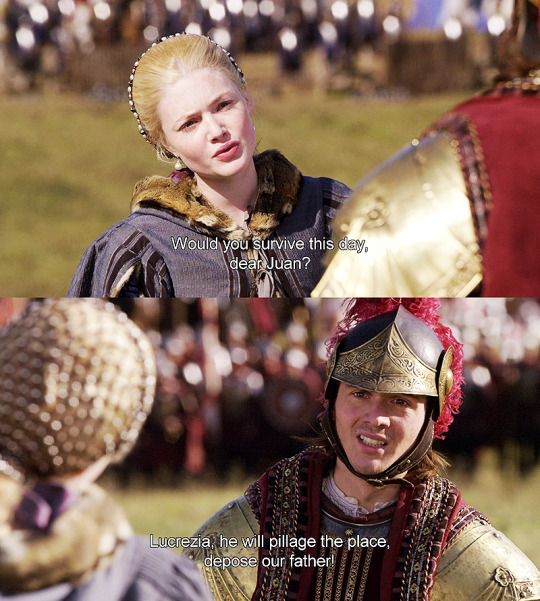
TRAGIC ISOLATION AND YEARNING FOR HIS SIBLINGS: “There’s a great little scene which we shot on the third-from-last day, which is Juan in the opium den scene, looking up at the ceiling with the smoke everywhere, where he says, ‘I think my brother and sister are having congress,’ which is the first time anyone in the entire series—I mean the audience had been thinking that for a while—that something twisted was going on between them. And the fact that Juan is aware of this and concerned by this is quite an interesting one. I don’t think he’s jealous of them being together. I think he’s jealous of not being a part of it as well. When he forgives Cesare at the end, saying how they’re brothers and wants to be together, I think that’s genuine. That’s the first time you realize what he’s always wanted. He just wants to be a part of the family, and at every turn they’ve not allowed him. They’ve always pushed him away, which is a great shame.” (⚜)
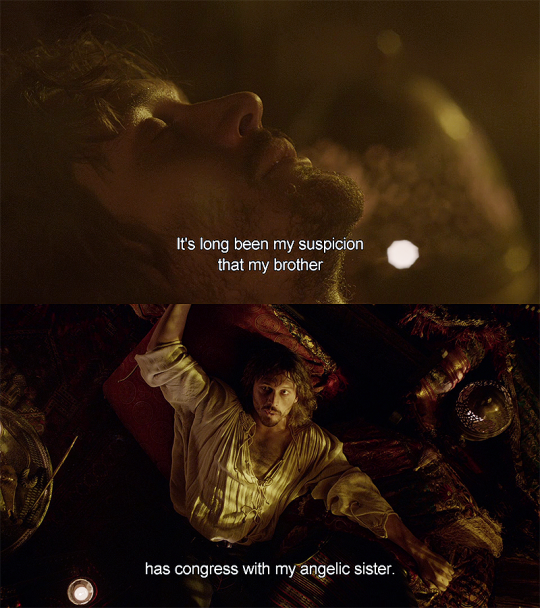
RELENTLESS SOLDIER DOOMED FOR TRAGEDY: “You’ve got this boy. And he is a boy at that stage still. He’s confessing that he’s always been quite miserable and been quite harsh on himself. He’s given them every opportunity to change their mind and see him for what he is. He finally gets things in order. He finally starts to work well. He gets a whole siege together, and it’s working. Then it all turns around because of Cesare. And he gets shot in the leg (laughs). How many times must he try to get something right before someone ruins it for him? He has the worst luck. He never gets a good break. But every now and then, when he gets it right, he still gets it in the end. He does a successful siege. He loses. He apologizes to his brother and gives his heart to him. And he still gets stabbed and thrown off a bridge.” (⚜)
LOVE AND FORGIVENESS VS. HATRED AND FRATRICIDE: “Because of the opium addiction, and because of what he’s saying, and because it’s so heartfelt and emotional—for the majority of that speech, it was quite singularly focused upon him. It was this torrent of thoughts rushing out of him that he’d been wanting to say for such a long time. And then finally, in that hug, everything comes to a head. That was quite moving. But I’m not sure Cesare will reciprocate that. Through all of that walk, he was so rigid and just preparing himself to do it, that he was not really listening to Juan, I thought, on the day—but intentionally, in character. If he had listened to what he was saying, perhaps Cesare would not have gone through with the act of killing his younger brother—especially when they are apologizing for their bad habits and trying to help them become more comfortable with themselves. It gets very close, doesn’t it? It’s interesting that Juan’s attempt at relieving pain is through closeness and hugging and love. Cesare’s attempt to relieve pain is through murder and fratricide—and that’s very interesting. It would have been quite nice to have seen where the character could have gone next. But I think what it certainly sets up is (God knows what will happen in Season Three) the downfall of the family. It will be a very different family without him.” (⚜)
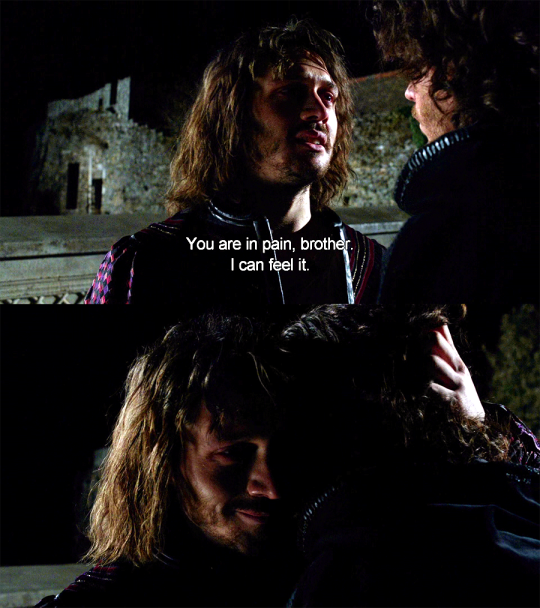
MISGUIDED SOUL SHUNNED BY HIS OWN: “He’s not afraid of dying in that sense. He’s afraid of not being liked or loved and being left by his family. It’s just his entire family, whether they know it or not, has been ganging up on him from the very beginning of the first season. What’s the problem with him? I think he’s lovely. I think he’s really kind and compassionate and cuddly.” (⚜)
THE MISUNDERSTOOD BRUTE WITH A HEART: "He's not a villain, he is misunderstood and wants people to realize that he's actually doing things for the right reasons but by doing that he acts like a child and acts like brute and acts like a bit of a psychopath at times." (⚜)
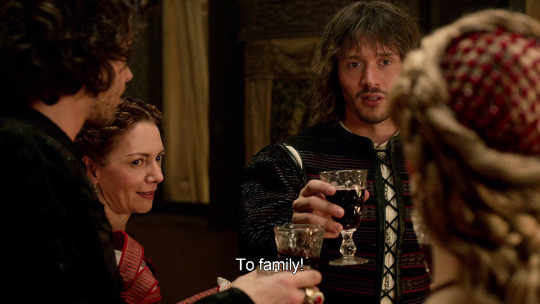
UNFAIRLY VILLAINIZED TO SERVE CESARE'S NARRATIVE: “It’s not nice, leaving a job when you’re not ready to. As far as I was concerned, Juan had just gotten very exciting and was being taken out in his prime, in terms of his character. But it was so bitterly cold. By the time Cesare gets to actually stab him in the stomach a few times, he’s kind of already gone. (laughs) He doesn’t pose much of a threat to anyone… Certainly, with that final episode, they tried to get me to play Juan as villainous as I possibly could—hence the Michael Jackson baby-dangling scene, and the attempted rape scene—to make him seem like a terribly bad person. Cesare always had the writing on his side.” (⚜)
====== JUAN IN WORK OF ART ======
MICHELANGELO'S PIETÀ: A POSSIBLE PORTRAIT OF JUAN BORGIA AND HIS MOTHER, VANNOZZA DEI CATTANEI
MIGUEL ESTEVE'S OUR LADY OF THE ROSARY AND THE MIRACLE OF THE KNIGHT OF COLOGNE: ACCORDING TO THE INTERPRETATION BY ÉMILE BERTAUX, THE PAINTING WAS COMMISSIONED BY MARÍA ENRÍQUEZ DE LUNA, THE WIDOW OF GIOVANNI (JUAN) BORGIA, THE DUKE OF GANDÍA, AND SHOWS THE MURDER OF HER HUSBAND BY HIS BROTHER, CESARE.
LODOVICO PGLIAGHI'S ART OF ALEXANDER VI AND HIS CHILDREN, LUCREZIA AND CESARE BORGIA, LOOKING AT THE CORPSE OF THE DUKE OF GANDÍA BROUGHT TO THE VATICAN. WOODCUT FROM FRANCESCO BERTOLINI: IL RINASCIMENTO E LE SIGNORIE ITALIANE (STORIA GENERALE D'ITALIA, VOL. 2.), PUBLISHED BY TREVES, MILANO, 1897
RETRATO DE HOMBRE" (A MAN ASSUMED TO BE JUAN BORGIA) BY GIROLAMO MARCHESI (1480–1550)
ST. CATHERINE'S DISPUTATION" BY PINTURICCHIO. THE STANDING FIGURE IN PINK IN THE LEFT FOREGROUND, FACING THE SPECTATOR, IS THOUGHT TO BE JUAN BORGIA
#well finally i'm done with this one. i made sure to cite every source as well from non biased scholars and david oakes' insights#gather all that has been a bit exhausting but but i enjoyed the proccess nevertheless. love history especially regarding this family#juan borgia#david oakes#the borgias#borgia#history#the borgia family#the house of borgia#historical fiction#historical figures#historical men#renaissance#renaissance italy#machiavelli#cesare borgia#lucrezia borgia#rodrigo borgia#pope alexander vi#pinturicchio#art#renaissance art#borgias#borgia family#painting#art history#italian history#vannozza dei cattanei#by jen
40 notes
·
View notes
Note
What is your interpretation of the breakfast scene in Queer? I am still grappling with my emotions about it. Why is Eugene so violent? And why is Lee saying all of that after? I’m very curious about your insight.
it's literally one of my favorite scenes in the whole movie i love it SO much and i think it says so much about the characters because it's the one time they clash without a deescalation. normally lee backs down or gene laughs it off but this time they meet and collide and sort of hiss at each other like alleycats because neither of them are even brave enough to have a proper fight.
gene is so violent because of what i think is like. a buildup of all the parts of lee that (for lack of a better word) he can't stand? like he 100% is starting to feel a lack of the independence he craves because he and lee are spending most of their time together and becoming increasingly more affectionate with each other. #1 notable thing about this is that in the scene directly before (which i take to be the afternoon or i guess a couple of days max before that morning) there's this whole exchange where gene is visibly enjoying their sex and being plainly affectionate with lee and admitting aloud that he enjoys the sexual aspects of their relationship which is like. the one thing someone in his position shouldn't do. it's absolutely intentionally a one step forward, three steps back thing for gene because he's like. well i've let lee know that i like him. now i have to let him know i Really Don't. and i love that about him soooo much.
lee here is the MOST special to me though because he's presenting his conflicting urges in this undiluted way that's wrapped up in a sort of performance so as to obfuscate the fact that he's being himself. i think "aren't you taking unfair advantage?" could be my favorite lee line because it's just so. this line is coming from the guy who for the entire movie's runtime has been like "please let me take advantage of you please let me isolate you i want to be the only person in your life i want to control you i want to use every advantage i have over you against you" and all of the sudden he's like "aren't you taking advantage of me? the sweet and innocent baby?" and like. the modicum of truth in his routine i think is that this is Actually how he sees himself. it could be manipulative and it might be if it was someone else but it's just not because lee actually believes he's childlike in this way and there's some level of awareness in him that his performative masculinity is just a performance. bringing up the bout of junk sickness is a sensitive thing for both of them too because it's this moment of weakness from lee and moment of tenderness from gene which is like. another thing they both crave but are both really afraid of.
it's really awesome ultimately because this might be the most direct they get with each other but they're still just completely speaking past each other and just laying out their desires but not understanding each other at all and not really finding any sympathy for each other either. it's as close as they get to spitting their hearts up at the same time and leaving them beating on the floor tbh. and god i love it when they fight.
#asks#queer 2024#i'm so glad you asked because i typed out tags this morning in the tags of the video and then they didn't save 😐 so#idk i don't know if i'm fully equipped to hashtag speak on it but wsb was a victim of csa and it's mentioned in some biographies#and those themes are clear in his work and in queer and SO clearly influence the creation of william lee#but i dont have copious sources to cite bc i have gotten them secondhand. so if this is something that interests you you should ask#my wsb encyclopedia bunny @persephonethewanderer bc they absolutely can speak on it and very well#and anyway what theyve told me has influenced my read of this movie for the better so 👍#also i'm about to reblog and probably say more but THISSSS IS WHY I WANT THOSE SCENES OF LEE IN GENE'S LAP#it illustrates the same thing just slightly more clearly and drives it home#anyway ill elaborate on it over there. ok love you bye
58 notes
·
View notes
Text



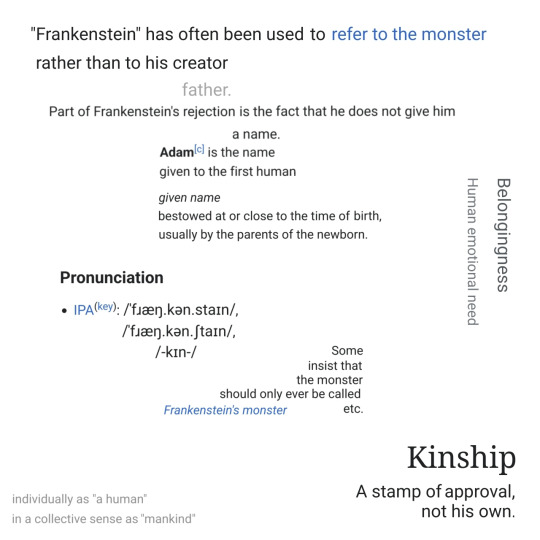
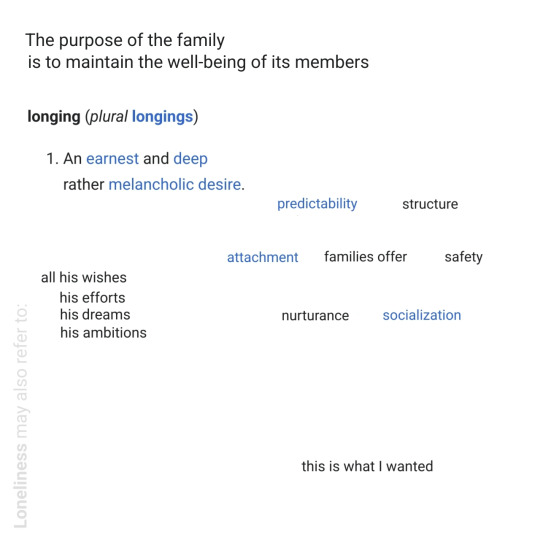
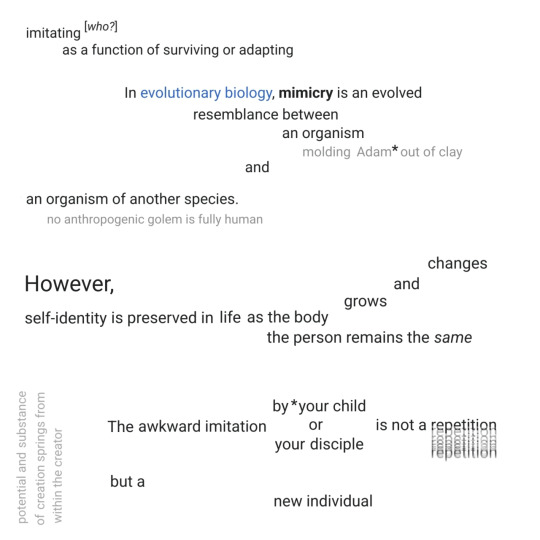
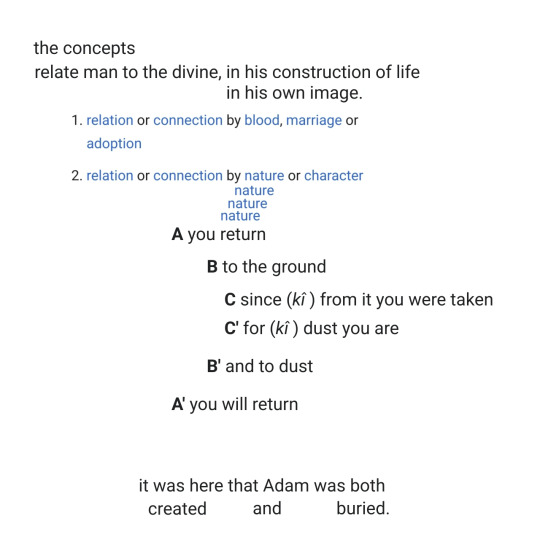
Sources: Wiktionary (Creation), Wikipedia (Creationism), Wikipedia (Adam), Wikipedia (Golem), Wikipedia (Homunculus), Wikipedia (Frankenstein), Wiktionary (Human), Wiktionary (Anatomy), Wikipedia (Citation Needed), Wiktionary (Frankenstein), Wikipedia (Kinship), Wikipedia (Belongingness), Wikipedia (Family), Wiktionary (Longing), Wikiquote (Imitation), Wikipedia (Template - Who?), Wikipedia (Asterisk), Wikipedia (Loneliness - Disambiguation), Wikipedia (Mimicry), Wikipedia (Personal Identity), Wiktionary (Kinship)
#my webs#ummm. um. 😁👍 so guess who's normal and having such a fun time!!!!#<- voice of a guy who totally wasn't changed by reading Frankenstein. um#yeah!#web weaving#webweaving#i heart wikipedia. fixated on finishing this for like 2 hours last night which is regular behaviour i am sure#long post#anyways :] sniles#tried to cite my sources!! i love house of leaves (points at the formatting
314 notes
·
View notes
Text
In defence of Will Ladislaw
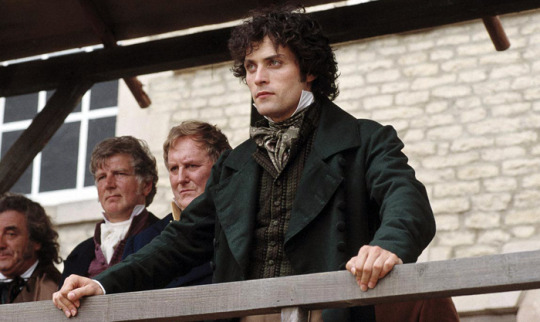
George Eliot's characterisation of Will Ladislaw is one of the few aspects of Middlemarch that is not universally praised, with no less a person than Henry James commenting in 1873 that he lacked “sharpness of outline and depth of color”, making him the novel’s “only eminent failure.” And while Will's character is certainly not as clearly defined as some of the other characters in the novel, I believe that this was absolutely intentional on Eliot's part. Middlemarch is full to the brim of characters who believe they know exactly what they want—not least among them, our two protagonists, Dorothea Brooke and Tertius Lydgate, whose ardent ambitions and inflexible attitudes lead them into catastrophic errors of judgement and unhappy marriages.
By contrast, Will's lack of strongly defined goals and his changeability are almost his defining character traits. He's aimless and pliable, prone to rapid mood swings and drastic career changes, with even his physical features seeming to "chang[e] their form; his jaw looked sometimes large and sometimes small; and the little ripple in his nose was a preparation for metamorphosis. When he turned his head quickly his hair seemed to shake out light."
Will’s inscrutability is closely tied to his ambiguous status within the rigid class structure and xenophobic society of Victorian England, with his Polish ancestry and “rebellious blood on both sides” making him a target for suspicion. He is repeatedly aligned (and aligns himself) with oppressed, marginalised, and outcast populations—Jewish people, artists, and the poor.
He serves as a narrative foil for characters like Lydgate and Edward Casaubon, who prioritise specialist expertise above all and are consequently incapable of broad knowledge synthesis. He critiques Casaubon's life's work as being "thrown away, as so much English scholarship is, for want of knowing what is being done by the rest of the world." By contrast, Will serves as Eliot's defence of the value of a liberal education. One of the first things that we learn about him is that he declines to choose a vocation, and instead seeks to travel widely, experiencing diverse cultures and ways of life. He has broad tastes and interests, trying his hand at poetry and painting before eventually pursuing a career in politics.
He also functions as a narrative foil for Dorothea. Will is initially apathetic to politics, whereas Dorothea initially professes herself to be disinterested in art and beauty. This is perfectly encapsulated in their exchange in Rome, when Dorothea declares, "I should like to make life beautiful—I mean everybody's life. And then all this immense expense of art, that seems somehow to lie outside life and make it no better for the world, pains one", to which Will replies, "You might say the same of landscape, of poetry, of all refinement [...] The best piety is to enjoy—when you can [...] I suspect that you have some false belief in the virtues of misery, and want to make your life a martyrdom.”
By the end of the novel, Dorothea unlearns some of her puritanical suspicion of sensual pleasure, whereas Will becomes more serious, compassionate, and politically engaged, dedicating his life to the accomplishment of humane political reforms. They are both flawed individuals, who ultimately become more well rounded through their relationship with each other. Admittedly, Dorothea's influence on Will is more significant than his on her—and once again, I believe that this was intentional on Eliot's part.
In my opinion, the negative response to Will Ladislaw at the time of Middlemarch's publication (and in the centuries since) was and is profoundly informed by gendered expectations of masculine dominance in romantic relationships. Will's marriage to Dorothea has often been described as disappointing, with many readers and critics viewing the ambitious Lydgate as the embodiment of the ideal husband that Dorothea outlines at the beginning of the novel—a talented man engaged in important work for the betterment of humanity, to whom she can devote herself.
However, one of the central themes of the novel is that people are often mistaken in their beliefs about what they want, and Dorothea's marriage to Edward Casaubon certainly demonstrates that she would not in fact be happy living her life in submission to a man who does not respect her opinions. I firmly believe that Lydgate's misogynistic attitudes and expectations would have made it impossible for him to be happy in a marriage of equals with a woman like Dorothea. He is explicitly drawn to Rosamond Vincy because she has "just the kind of intelligence one would desire in a woman—polished, refined, docile."
By contrast, George Eliot made a deliberate choice to pair Dorothea with a man who is not ashamed to be influenced by her, and indeed looks up to her as his moral superior. Through Dorothea's influence, Will discovers his life's work. In turn, by marrying Will, Dorothea is able to pursue her true passion. As a result of their influence on each other, these come to mean the same thing—reform. Thus, George Eliot grants Dorothea Brooke a subversively feminist, politically progressive, and profoundly cathartic ending: a life of companionate marriage, sensual pleasure, and meaningful work, in which Dorothea can devote herself (within the limited means available to her as a woman in the 19th century) to the achievement of just and compassionate reforms that "make life beautiful" for everybody—herself included.
#PUT SOME RESPECT ON HIS NAAAAAME#hello please enjoy this fucking essay that I wrote#I haven't cited them here bc I'm not insane but I did in fact read several academic articles while writing this post#so if you wanna see my sources/ do some further reading let me know#i love pouring all my fandom energy into content that no-one gives a shit about#(girl who just posted an Alias Grace fic that noone will ever read and is currently working on a Middlemarch fic noone will ever read voice#Middlemarch#George Eliot#Mary Ann Evans#Will Ladislaw#Dorothea Brooke#Edward Casaubon#Tertius Lydgate#classic literature#19th century literature#classic lit#books
164 notes
·
View notes
Text
why are some people still citing their sources in text instead of using footnotes, and why do they hate me specifically?
#i get it it's a personal choice if you want to use footnotes or cite in text#but i don't think these people realize how much harder it is for some poeple (like me) to read texts like these#my reading is interrupted a lot i have to reread sentences at least twice sometimes more and i get distracted so fucking easily#please tell me i am not the only one struggling with this#i am using up so much brain energy for something that should be simple WHY#please for the love of the gods use footnotes to cite sources#cris speaks
34 notes
·
View notes
Text
question for academic discussion: when did mulder realize he was in love with scully? and when did scully realize she was in love with mulder?
#please feel free to cite your sources OR alternatively base your answer off of sheer vibes#disclaimer: definition of “love” is to be made by the person responding#personally i love their whole “whatever the hell we have going on can't be explained in words” dynamic#but i'm really interested in hearing people's different interpretations because it's pretty subjective and reading people's reasoning#it is so fascinating... because i can see so many of them being true!!#ah i love you media analysis#the x files#txf#msr
68 notes
·
View notes
Text
ethereal beautiful meaningful soukoku and cringe fail loser soukoku are two concepts that can and should (and do) coexist
#'please cite your sources'#'gladly!' i say#handing them the entire manga collection and most of the light novels#'here you go!'#bsd#bungou stray dogs#bsd dazai#bsd chuuya#skk#soukoku#yes i love their breathtaking imagery and divine vibes#(puns entirely intended)#but i also love how absolutely fucking stupid and dumb they can be#they are beauty they are grace they are walking disasters#not disasters waiting to happen#eternally happening disasters#anyway#i am correct#argue with the wall
123 notes
·
View notes
Text
Getting back on my Zack Is Canonically Polyamorous soapbox because the people need to know and also the number of people accusing Aerith of being unfaithful in Rebirth is absolutely fucking ridiculous when taking Zack's romantic escapades into account.
There are spoilers here, and I'm tagging accordingly, but I'm not putting it under a cut.
We know for a fact that Zack is in a relationship with Aerith. We've known this since the OG, although we didn't know most of the details back then, just that they were together. In Remake, Aerith describes Zack as her "first love." In Chapter 11 of Rebirth, the first memories of Zack that Cloud reclaims are of him talking about how great Aerith is, and Cloud describes him as being "head over heels" for her. In Chapter 8, we found out that Zack's parents were able to recognize her based entirely on Zack gushing about her when he wrote home—and this is one of the most important parts, honestly.
Zack has a thing with Cissnei. We don't know how deep it is, but throughout Crisis Core (and even in the summer event in Ever Crisis) we can see very clearly that there is something between them, and it's never treated like a big deal. She's never completely honest about her feelings, so we can assume he didn't know that she saw him as anything more than a casual thing, but they have a relationship. It's made explicitly clear that this is the case when Zack returns to Gongaga and she lets him know that she's spoken to his parents, and he warns her that they're basically going to suggest that she marry him.
Zack's parents know about his relationship with Aerith and they also apparently know enough about his relationship with Cissnei to suggest that she make that relationship "official." They want her to join the family. They asked, she apparently reciprocated, and she lives in Gongaga after Veld is "killed."
Cissnei is also aware that Zack is in a relationship with Aerith, but that doesn't stop her from pursuing him anyway. She gets it and she's okay with it. She never, at any point, tries to push him away from Aerith—she's the one that tells him how special Aerith is, how important, how lonely. She's supportive of his relationship, and doesn't seem to feel that it makes her own feelings or their relationship any less valid.
Okay, so that's proof that the people around him are, at the very least, okay with him having multiple partners. That doesn't necessarily mean he's poly, though, maybe he's just a womanizer and everyone accepts it. Weird, but possible. He's really endearing so maybe they all give him a pass.
But no! No this isn't it at all! And we know it because of how Zack responds to Aerith being in love with someone else in Rebirth. When he finds out that Aerith is has feelings for Cloud, there's not a hint of jealousy in a single thing he does or says. He's disappointed when Marlene says it's because he wasn't there, but it's not disappointment in Aerith or in Cloud—it's disappointment in himself, because Marlene is right. He wasn't there. He couldn't protect her. There's also no spite there, he never responds like her feelings are wrong because he's here now and that means Aerith can rely on him again, and we know that because of how he responds to this information.
Zack finds out that Aerith has feelings for Cloud, and his immediate mission is to make sure that Cloud recovers as quickly as possible. Now it's not just for him, it's not just because that's his friend, it's because Aerith loves him (too) and that means he has to save Cloud for both of them.
He's fully supportive of Aerith and Cloud having a relationship, to the point that the last thing he says to Cloud when he gets thrown into a dying timeline is a request that he take care of Aerith. He's not exactly passing the torch here, because he's still alive—but he doesn't know if he'll be able to meet back up with a version of Cloud that is awake again, and he needs Cloud to know that he supports them in this.
And then, in the dying timeline where Zack is banished after fighting Sephiroth, he has the ability to synergize with Cloud from across the multiverse. The DMW limit break connected to Aerith is active in the space. All three of them are together here, just not physically; Cloud and Aerith are protecting Zack as much as Zack has been struggling to protect them.
Zack loves that Aerith loves someone other than him because that's how he is too. Zack has multiple relationships at the same time, he loves multiple people at the same time, he has emotionally intimate connections with multiple people at the same time. Why would he take issue with the love of his life feeling the same way?
Cloud isn't his replacement any more than Cissnei and Aerith are interchangeable, and Zack understands that, because Zack is polyamorous—and he's really happy that Aerith may be, too.
#ff7 rebirth spoilers#fandom ramble#ffvii#final fantasy vii#final fantasy 7#final fantasy 7 rebirth#ff7rb#ff7r#crisis core#ccff7r#cissnei#zack fair#aerith gainsborough#cloud strife#not tagging ANY of those ships lol#I don't even really ship any of them myself tbh#except for a throuple involving z and a and cissnei#that's my preferred combination here#but the love is there regardless of my preferences#it's in the source material very clearly#also I do think zack has feelings for cloud#but I can't cite a specific point in-canon to indicate they have a RELATIONSHIP#and it's the CANONICAL RELATIONSHIPS that are the key here#polyamory isn't cheating y'all#nobody here was unfaithful to anyone else#calm the fuck down#100% sure on that
94 notes
·
View notes